


Farewell to the I-35 Court of Appeals, one of many courts that would have arisen from SB11 in this Legislative term. Fortunately, the bill’s main advocate abandoned the effort yesterday; she correctly notes that the topic of court structure is one “with many stakeholders” that should be considered in a deliberate way. 
The parties’ dispute in Sazy v. J.R. Birdwell Constr. & Restoration, LLC went to trial and final judgment on the jury’s verdict. The sole issue on appeal was the denial of the defendant’s motion to transfer venue pretrial. While pretrial review of venue decisions is significantly limited by statute, those decisions are fair game for appeal post-trial. No. 05-19-01351-CV (April 1, 2021) (mem. op.).
The state Senate has undertaken the redistricting the current 14 intermediate-court districts in Texas; Law360 has a thorough story and related chart after a recent Jurisprudence Committee hearing. As for Dallas, the Senate’s plan links Austin and Dallas (right, below), cities that have been jurisprudentially distinct since at least 1893 (left, below). Please make your opinions known on the “I-35 Court of Appeals” as the Legislature continues to consider this proposal.
Many books and movies involve tales of scary creatures who return, ranging from Grendel’s family in the ancient epic of Beowulf to “Where’s My Mummy?”, an underappreciated part of the Scooby Doo multiverse. The to pic of briefing waiver returns in the majority opinion from Herczeg v. City of Dallas, which found waiver in a sovereign-immunity case because the opening brief did not address untimeliness or exhaustion of remedies. It distinguished St. John Missionary Baptist v. Flakes, 595 S.W.3d 211 (Tex. 2020), as involving “two grounds [that] were not actually independent but were inextricably intertwined,” while here, “untimeliness and failure to exhaust administrative remedies are independent of the City’s other grounds, which focused on the merits of Herczeg’s claims.” A dissent questioned whether the older authority cited by the majority continued to be viable after Flakes. Justice Garcia wrote for the majority, joined by Justice Smith; Justice Schenck dissented. No. 05-19-01023-CV (March 29, 2021) (mem. op.).
pic of briefing waiver returns in the majority opinion from Herczeg v. City of Dallas, which found waiver in a sovereign-immunity case because the opening brief did not address untimeliness or exhaustion of remedies. It distinguished St. John Missionary Baptist v. Flakes, 595 S.W.3d 211 (Tex. 2020), as involving “two grounds [that] were not actually independent but were inextricably intertwined,” while here, “untimeliness and failure to exhaust administrative remedies are independent of the City’s other grounds, which focused on the merits of Herczeg’s claims.” A dissent questioned whether the older authority cited by the majority continued to be viable after Flakes. Justice Garcia wrote for the majority, joined by Justice Smith; Justice Schenck dissented. No. 05-19-01023-CV (March 29, 2021) (mem. op.).
 A common sci-fi movie trope is the image of a “mad scientist” working in the laboratory. Texas appellate lawyers and judges have a similar look when applying Crown Life Ins. Co. v. Casteel, 22 S.W.3d 378 (2000), which deals with the vexing problem of jury charges that mix valid and invalid elements. The Fifth Court’s majority opinion in Kansas City Southern Ry. Co. v. Horton, No. 05-19-00856-CV (March 11, 2021) (mem. op.), after finding one of the plaintiffs’ two liability theories preempted by federal law, found a Casteel issue with a broad-form negligence submission in a personal injury case. It distinguished an earlier Dallas case and a Corpus Christi decision as involving factual-sufficiency rather than legal-validity issues. A dissent took issue with the holding about preemption.
A common sci-fi movie trope is the image of a “mad scientist” working in the laboratory. Texas appellate lawyers and judges have a similar look when applying Crown Life Ins. Co. v. Casteel, 22 S.W.3d 378 (2000), which deals with the vexing problem of jury charges that mix valid and invalid elements. The Fifth Court’s majority opinion in Kansas City Southern Ry. Co. v. Horton, No. 05-19-00856-CV (March 11, 2021) (mem. op.), after finding one of the plaintiffs’ two liability theories preempted by federal law, found a Casteel issue with a broad-form negligence submission in a personal injury case. It distinguished an earlier Dallas case and a Corpus Christi decision as involving factual-sufficiency rather than legal-validity issues. A dissent took issue with the holding about preemption.
 “’When a trial court’s order does not specify the grounds for its summary judgment, an appellate court must affirm the summary judgment if any of the theories presented to the trial court and preserved for appellate review are meritorious.’ However, when the trial court’s summary judgment order does
“’When a trial court’s order does not specify the grounds for its summary judgment, an appellate court must affirm the summary judgment if any of the theories presented to the trial court and preserved for appellate review are meritorious.’ However, when the trial court’s summary judgment order does
specify a ground on which it was granted, we generally limit our review to that ground.
Here, because the trial court’s summary judgment order specified the ground
on which it was granted—that Finley was a released party because the term
‘predecessor’ in the Release includes an entity that was a ‘predecessor in title’ to
the subject property interest—we will limit our review to that theory.” Headington Royalty v. Finley Resources, No. 05-19-00291-CV (March 18, 2021) (citations omitted) (emphasis added).
This is a cross-post from 600Camp, which follows commercial litigation in the Fifth Circuit.
The DC Circuit’s recent style manual amendment that criticized the use of “Garamond” font has drawn national attention. As this matter has now become a pressing issue facing the federal courts, 600Camp weighs in with these thoughts, all of which are written in 14-point size:
Accordingly, if you really like Garamond and are writing a brief with a word limit rather than a page limit, you should consider bumping the size up to 15-point. And of course, in a jurisdiction with page limits rather than word limits, Garamond offers a way to add more substance to your submission–but be careful that this extra substance does not come at the price of less visibility.
The Fifth Court rejected an argument that a supreme court emergency order extended the trial court’s plenary power after a case’s dismissal: “[T]he language in the emergency orders ‘giving a court the power to modify or suspend “deadlines and procedures” presupposes a pre-existing power or authority over the case or the proceedings. . . . It does not suggest that a court can create jurisdiction for itself where the jurisdiction would otherwise be absent[.]’ Here, the trial court lost jurisdiction over the case on July 20, and the motion to reinstate was not filed until November. Because the trial court lacked jurisdiction over the case by the time the motion to reinstate was filed, it could not avail itself of the emergency order to reinstate the case, and the challenged orders are void.” Quariab v. Khalili, No. 05-20-00979-CV (March 15, 2021) (mem. op.) (citing In re State ex rel. Ogg, No. WR-91,936-01, 2021 WL 800761, at *3 (Tex. Crim. App. Mar. 3, 2021)).
 “Texas law provides district court judges with ‘the power to
“Texas law provides district court judges with ‘the power to
issue writs necessary to enforce their jurisdiction.’ While the Taxing Entities urge the Post Judgment Order falls within this power to ‘enforce’ the judgment, they fail to explain how an order withdrawing part of the relief afforded by the judgment would amount to ‘enforcement’ or be available to a party after expiration of the trial court’s plenary power other than by appeal.” NMF Partnership v. City of Dallas NMF Partnership v. City of Dallas, No. 05-19-01578-CV (March 17, 2021) (mem. op.) (citations omitted).
 The issue: “[W]hether the word ‘predecessors’ in the Release’s phrase “[Headington] waives, releases, acquits and discharges Petro Canyon and its affiliates and their respective officers, directors, shareholders, employees, agents, predecessors and representatives for any liabilities, claims, . . . [and] causes of action . . . related in any way to the Loving County Tract” refers to (i) Petro Canyon and its affiliates’ corporate entities and agents (‘Players’) or (ii) prior parties in Petro Canyon’s chain of title (‘Spectators’) that are otherwise unrelated to Petro Canyon.”
The issue: “[W]hether the word ‘predecessors’ in the Release’s phrase “[Headington] waives, releases, acquits and discharges Petro Canyon and its affiliates and their respective officers, directors, shareholders, employees, agents, predecessors and representatives for any liabilities, claims, . . . [and] causes of action . . . related in any way to the Loving County Tract” refers to (i) Petro Canyon and its affiliates’ corporate entities and agents (‘Players’) or (ii) prior parties in Petro Canyon’s chain of title (‘Spectators’) that are otherwise unrelated to Petro Canyon.”
Held: “‘[P]redecessors’ is in a string of entity-related groups (‘Players’), not chain of title-related owners of the real property interest (‘Spectators’). Excluding ‘predecessor,’
each of those other terms in the Release relate as ‘birds of a feather’ to the corporate
composition or structure of Petro Canyon and its affiliates. The placement of the
term ‘predecessors’ along with its ordinary meaning gives the term a certain legal
meaning.”
Dissent: “The majority’s interpretation of the term “predecessors” in the Release fails to acknowledge the context of the circumstances surrounding the PCH Agreement, including the events leading to its formation, the relationships of the parties, each party’s motivations for entering the agreement, and the intentions of the parties as expressed in the agreement. The majority’s interpretation of the Release also impermissibly adds language to the Release, and the majority opinion conflicts with this Court’s prior opinions.” Headington Royalty v. Finley Resources, No. 05-19-00291-CV (March 18, 2021).
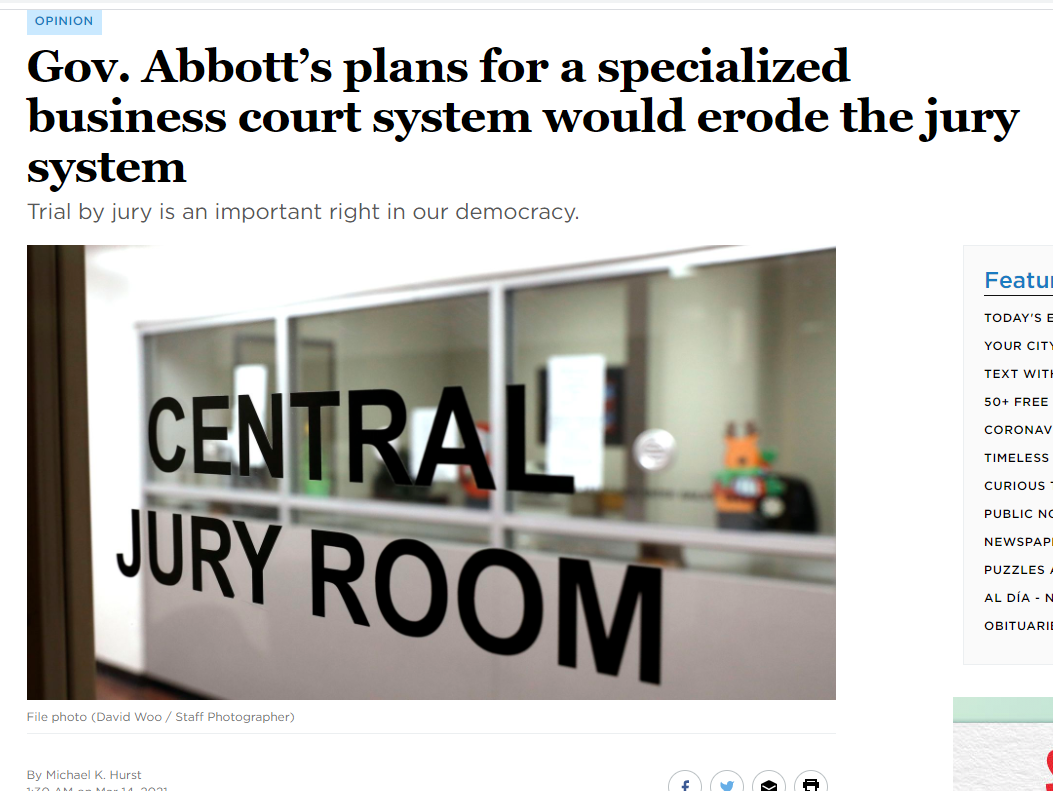 My colleague Michael Hurst wrote an insightful op-ed in the Dallas Morning News about a proposed system of specialized business courts for Texas. He questions whether it fits well with constitutional guaranties of the right to jury trial.
My colleague Michael Hurst wrote an insightful op-ed in the Dallas Morning News about a proposed system of specialized business courts for Texas. He questions whether it fits well with constitutional guaranties of the right to jury trial.
 In Anubis Pictures LLC v. Selig, a dispute about the development of a screenplay, two terms from an early-stage NDA were key to resolving it:
In Anubis Pictures LLC v. Selig, a dispute about the development of a screenplay, two terms from an early-stage NDA were key to resolving it:
As to the parties’ relationship: “Neither party is bound to proceed with any transaction between the parties unless and until both parties sign a formal, written agreement setting forth the terms of such transaction. At any time prior to the completion of such a formal, written agreement, either party may terminate the Discussions and refuse to enter into any subsequent transaction, for any reason or for no reason, without liability for such termination, even if the other performed work or incurred expenses related to a potential transaction in anticipation that the parties would enter into a formal, written agreement regarding such transaction.”
As to the documents shared: “To be covered under the terms of the NDA, confidential information disclosed in written form was required to be marked confidential on its face. Any oral statement intended to be confidential had to be clearly designated as such by the disclosing party.” No. 05-19-00817-CV (March 3, 2021) (mem. op.).
 The Fifth Court denied mandamus relief in a dispute about third-party document confidentiality, observing that the party resisting discovery (1) “relied, in part, on a non-disclosure agreement that by its very terms expired years before the documents were subpoenaed and produced.” and (2) “relied on the affidavit of the President of one of [the movant’s] portfolio companies, which contains conclusory allegations concerning the confidential nature of [its] business and strategies, and of potential harm. Those assertions, in and of themselves, are not dispositive of the objection to confidentiality.” In re Edelman, No. 05-21-00085-CV (March 5, 2021).
The Fifth Court denied mandamus relief in a dispute about third-party document confidentiality, observing that the party resisting discovery (1) “relied, in part, on a non-disclosure agreement that by its very terms expired years before the documents were subpoenaed and produced.” and (2) “relied on the affidavit of the President of one of [the movant’s] portfolio companies, which contains conclusory allegations concerning the confidential nature of [its] business and strategies, and of potential harm. Those assertions, in and of themselves, are not dispositive of the objection to confidentiality.” In re Edelman, No. 05-21-00085-CV (March 5, 2021).
A dissent concluded that one of the documents was protected by Texas’s shield statute, observing: “[The interest implicated by Exhibit M is not merely proprietary but also appears to concern a recurring relationship between a media relations firm and a news reporter, the disclosure of which would directly implicate the journalist’s news gathering rights.”
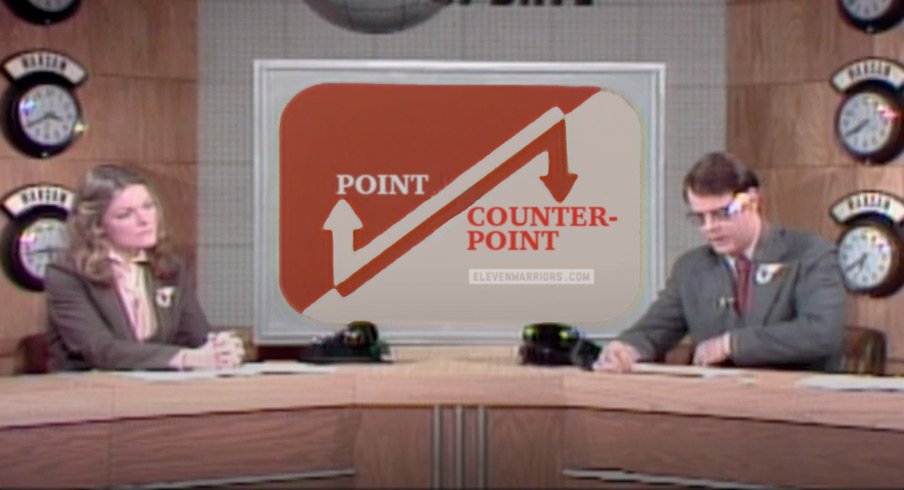 A group of investors (“FPH”) in a business (“FSG”) sought the appointment of a receiver to review and report on the finances of FSG. The trial court (1) agreed, and then (2) allowed FSG to supersede the order with a $10,000 bond while it took an interlocutory appeal, but then (3) allowed FPH to post a “counter-supersedeas bond” of $11,875 so that the receiver’s work could proceed during the interlocutory appeal. The Fifth Court found that “[TRAP] 24.2(a)(3) expressly permitted the trial court to allow FPH to post a counter-supersedeas bond,” and then found the bond amount to be appropriate in light of “[t]he fact that FSG continues to have sole control of its management” and the evidence presented about FSG’s financial situation. Five Star Global, LLC v. Hulme, No. 05-20-00940-CV (March 2, 2021).
A group of investors (“FPH”) in a business (“FSG”) sought the appointment of a receiver to review and report on the finances of FSG. The trial court (1) agreed, and then (2) allowed FSG to supersede the order with a $10,000 bond while it took an interlocutory appeal, but then (3) allowed FPH to post a “counter-supersedeas bond” of $11,875 so that the receiver’s work could proceed during the interlocutory appeal. The Fifth Court found that “[TRAP] 24.2(a)(3) expressly permitted the trial court to allow FPH to post a counter-supersedeas bond,” and then found the bond amount to be appropriate in light of “[t]he fact that FSG continues to have sole control of its management” and the evidence presented about FSG’s financial situation. Five Star Global, LLC v. Hulme, No. 05-20-00940-CV (March 2, 2021).
Gharavi owned a business that won an arbitration against Khademazad. Gharavi sued to enforce the award, and along the way, made a comment about Khademazad and the award on Yelp. The parties resolved their differences and entered a settlement agreement of the lawsuit about the award, in which Khademazad released all claims “directly or indirectly attributable to the transaction or occurences made the basis of this lawsuit.” Several weeks later, Khademazad sued for libel and similar claims based on the Yelp post. The Fifth Court found that this suit was barred by the release: “Without question, the Yelp review was, if not directly, then indirectly attributable to Khademazad’s failure to pay for Aidris’s services and the lawsuit that followed. Khademazad’s claims here are clearly within the subject matter of the release.” Gharavi v. Khademazad, No. 05-20-00083-CV (Feb. 2, 2021) (mem. op.).
The parties in Ninety Nine Physician Services, PLLC v. Murray arbitrate d a business dispute; the lingering issue at confirmation was an award of $341,680 in attorneys’ fees. The Fifth Court found that the award was proper, reasoning as follows:
d a business dispute; the lingering issue at confirmation was an award of $341,680 in attorneys’ fees. The Fifth Court found that the award was proper, reasoning as follows:
The Court thus reversed a trial-court ruling that vacated that portion of the award. A concurrence would have reached the same result for a different reason: “Because appellant did not file any pleading affirmatively seeking attorneys’ fees until after the arbitration hearing, the arbitrator abused his discretion in awarding attorneys’ fees to appellant. The arbitrator’s mistake of law, however, is not grounds to vacate the award, and the trial court erred in doing so. Consequently, appellant was entitled to enforcement of the attorneys’ fees award but not on the basis relied upon by the majority.” No. 05-19-01216-CV (Feb. 22, 2021) (mem. op.).
The Texas Supreme Court heard arguments today in In re: Estate of Johnson, No. 05-18-01193-CV (Nov. 4, 2019) (mem. op.), which presents a fundamental issue in Texas probate law–whether a beneficiary’s acceptance of benefits under a will defeats that beneficiary’s standing to challenge that will.
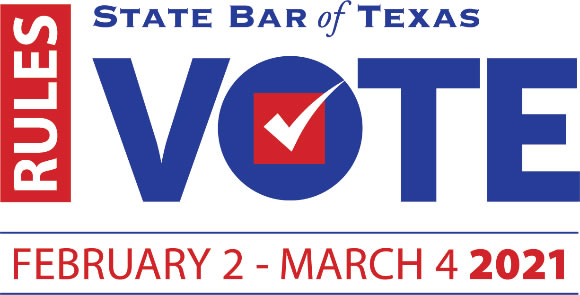 If you have power and a little time for a half-hour of ethics CLE, the State Bar Litigation Section has put together this good video about the proposed new disciplinary rules. The voting period ends March 4 and you can do that on the State Bar website.
If you have power and a little time for a half-hour of ethics CLE, the State Bar Litigation Section has put together this good video about the proposed new disciplinary rules. The voting period ends March 4 and you can do that on the State Bar website.
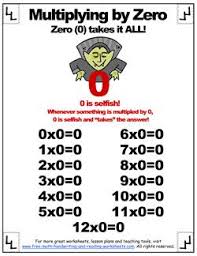 Allegations about a great deal of activity that does not implicate the TCPA,’s protection of the right of association, do not implicate the TCPA’s protection of the right of association: “Tiffany first contends that Rupert’s allegations of conspiracy and joint enterprise meet this standard because they involve the disposition of Marie’s estate (including certain community property) and ‘two decades of publicly filed lawsuits.’ She cites no authority for the proposition that the estate proceedings of a private individual involve public or citizen’s participation, and we have found no such authority. Likewise, we find no authority supporting the notion that extended litigation between and among these parties becomes a matter of public or citizen’s participation merely because of its volume or allegedly repetitive nature. On the contrary, the allegations made by Rupert are of an intensely personal nature, and they address actions involving the personal relationships within the Pollard family.” Pollard v. Pollard, No. 05-19-00240-CV (Feb. 8, 2021) (mem. op.).
Allegations about a great deal of activity that does not implicate the TCPA,’s protection of the right of association, do not implicate the TCPA’s protection of the right of association: “Tiffany first contends that Rupert’s allegations of conspiracy and joint enterprise meet this standard because they involve the disposition of Marie’s estate (including certain community property) and ‘two decades of publicly filed lawsuits.’ She cites no authority for the proposition that the estate proceedings of a private individual involve public or citizen’s participation, and we have found no such authority. Likewise, we find no authority supporting the notion that extended litigation between and among these parties becomes a matter of public or citizen’s participation merely because of its volume or allegedly repetitive nature. On the contrary, the allegations made by Rupert are of an intensely personal nature, and they address actions involving the personal relationships within the Pollard family.” Pollard v. Pollard, No. 05-19-00240-CV (Feb. 8, 2021) (mem. op.).
 In a premises-liability case, the defendant challenged the expert testimony relied upon by the plaintiff. The Fifth Court rejected the challenge, reasoning: “Essentially, United contends that because English’s opinions have been excluded by other courts, we should “follow the lead” of these other courts and not consider them. We reject United’s invitation. United has not cited to any specific conclusory statements in English’s report. Rather, United argues that English’s report is conclusory because he provided a ‘cut-and-paste job’ that is a ‘rather generic’ opinion that ‘he regurgitates every time he
In a premises-liability case, the defendant challenged the expert testimony relied upon by the plaintiff. The Fifth Court rejected the challenge, reasoning: “Essentially, United contends that because English’s opinions have been excluded by other courts, we should “follow the lead” of these other courts and not consider them. We reject United’s invitation. United has not cited to any specific conclusory statements in English’s report. Rather, United argues that English’s report is conclusory because he provided a ‘cut-and-paste job’ that is a ‘rather generic’ opinion that ‘he regurgitates every time he
is hired.’ However, such statements provide no particular basis for United’s
objection. Objections that statements are conclusory may not be conclusory
themselves.” McIntyre v. United Supermarkets, No. 05-19-01252-CV (Feb. 4, 2021) (mem. op.).
 Sherie McIntyre was injured when she fell in a pothole in a grocery store parking lot. The Fifth Court (in Justice Craig Smith‘s first appearance in this blog) reversed a defense summary judgment in McIntyre v. United Supermarkets, finding a fact issue on the question of the store owner’s constructive knowledge of the pothole: “Trevino testified that he inspected the parking lot approximately twenty to twenty-four times during the first six months of the store’s opening. He noticed the spot where McIntyre fell but ‘didn’t feel that it needed to be repaired . . . It never stood out as a haza
Sherie McIntyre was injured when she fell in a pothole in a grocery store parking lot. The Fifth Court (in Justice Craig Smith‘s first appearance in this blog) reversed a defense summary judgment in McIntyre v. United Supermarkets, finding a fact issue on the question of the store owner’s constructive knowledge of the pothole: “Trevino testified that he inspected the parking lot approximately twenty to twenty-four times during the first six months of the store’s opening. He noticed the spot where McIntyre fell but ‘didn’t feel that it needed to be repaired . . . It never stood out as a haza rd.’ Thus, Trevino’s repeated inspections put him in close proximity to observe the pothole, which he in fact did notice. Trevino acknowledged that the parking lot was restriped before United opened the new store and had not been restriped since then. A picture of the pothole shows the white stripe going over part of the pothole indicating it had been present for at least six months. Thus, McIntyre produced more than a scintilla of evidence to raise a genuine issue of material fact as to whether United had constructive notice of the pothole.” No. 05-19-01252-CV (Feb. 4, 2021) (mem. op.). The Court also found a fact issue on the question of unreasonable danger.
rd.’ Thus, Trevino’s repeated inspections put him in close proximity to observe the pothole, which he in fact did notice. Trevino acknowledged that the parking lot was restriped before United opened the new store and had not been restriped since then. A picture of the pothole shows the white stripe going over part of the pothole indicating it had been present for at least six months. Thus, McIntyre produced more than a scintilla of evidence to raise a genuine issue of material fact as to whether United had constructive notice of the pothole.” No. 05-19-01252-CV (Feb. 4, 2021) (mem. op.). The Court also found a fact issue on the question of unreasonable danger.
 Toyota Motor Sales v. Reavis, a companion case to a still-ongoing appeal of a major products-liability judgment, affirmed the denial of Toyota’s motion to seal certain trial exhibits. After reviewing Toyota’s case for confidentiality, the Fifth Court then turned to available less-restrictive means, holding: “Beyond Toyota’s blanket assertions that a total seal is necessary and redaction would be meaningless, Toyota did not offer any additional testimony or evidence regarding whether the Toyota documents could be redacted or otherwise altered while still protecting its interest. Toyota also contends on appeal that it showed sealing was the least restrictive means to protect its interest here because it sought to seal ‘just four exhibits from a trial involving over 900 exhibits and [covering] pages of closed-courtroom testimony from more than 3,200 pages of trial
Toyota Motor Sales v. Reavis, a companion case to a still-ongoing appeal of a major products-liability judgment, affirmed the denial of Toyota’s motion to seal certain trial exhibits. After reviewing Toyota’s case for confidentiality, the Fifth Court then turned to available less-restrictive means, holding: “Beyond Toyota’s blanket assertions that a total seal is necessary and redaction would be meaningless, Toyota did not offer any additional testimony or evidence regarding whether the Toyota documents could be redacted or otherwise altered while still protecting its interest. Toyota also contends on appeal that it showed sealing was the least restrictive means to protect its interest here because it sought to seal ‘just four exhibits from a trial involving over 900 exhibits and [covering] pages of closed-courtroom testimony from more than 3,200 pages of trial
transcripts.’ This argument misses the point. Rule 76a imposes strict requirements to obtain a sealing order, and parties are not rewarded with a sealing order simply because they ask the court to only seal a few exhibits or a small amount of testimony. No matter how many exhibits a party seeks to seal, that party must still meet the
requirements of the rule.” No. 05-19-00284-CV (Feb. 4, 2021) (mem. op.).
 Toyota Motor Sales v. Reavis, a companion case to a still-ongoing appeal of a major products-liability judgment, affirmed the denial of Toyota’s motion to seal certain trial exhibits. Noting the general presumption in favor of open records, the Fifth Court observed, inter alia:
Toyota Motor Sales v. Reavis, a companion case to a still-ongoing appeal of a major products-liability judgment, affirmed the denial of Toyota’s motion to seal certain trial exhibits. Noting the general presumption in favor of open records, the Fifth Court observed, inter alia:
No. 05-19-00284-CV (Feb. 4, 2021) (mem. op.).
 A vote is underway – eight new Texas Disciplinary Rules have been proposed, and the supreme court has authorized a State Bar membership vote about them. This page has information about the proposed rules.
A vote is underway – eight new Texas Disciplinary Rules have been proposed, and the supreme court has authorized a State Bar membership vote about them. This page has information about the proposed rules.
 Singh v. Gill reminds of the importance of strict compliance with Tex. R. Civ. P. 106, the substituted-service rule:
Singh v. Gill reminds of the importance of strict compliance with Tex. R. Civ. P. 106, the substituted-service rule:
No. 05-19-01146-CV (Jan. 20, 2021) (mem. op.).
This is a crosspost from 600Hemphill, which follows business litigation in the Texas Supreme Court; the court of appeals opinion under review came from the Fifth Court.
_______
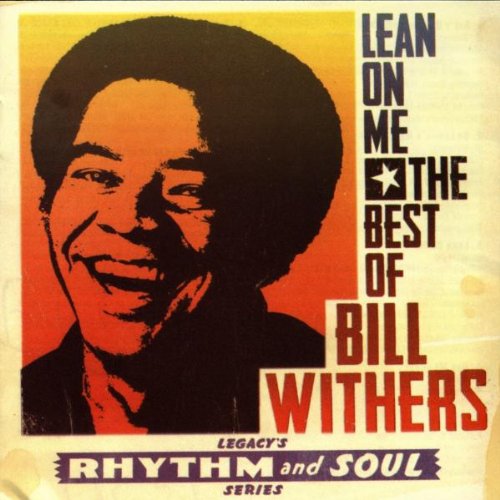 A per curiam opinion, based on the Court’s recent opinion in Federal Home Loan Mortgage Co. v. Zepeda, 601 S.W.3d 763 (Tex. 2020), reminded about a lender’s equitable-subordination rights:
A per curiam opinion, based on the Court’s recent opinion in Federal Home Loan Mortgage Co. v. Zepeda, 601 S.W.3d 763 (Tex. 2020), reminded about a lender’s equitable-subordination rights:
“[E]quitable-subrogation rights become fixed at the time the proceeds from a later loan are used to discharge an earlier lien. A lender’s negligence in preserving its rights under its own lien thus does not deprive the lender of its rights in equity to assert an earlier lien that was discharged using proceeds from the later loan. Although we considered the lender’s negligence in Sims, that analysis is limited to the lien-priority context.
Applying Zepeda to this case, the court of appeals erred in concluding that PNC’s  failure to timely foreclose under the deed of trust bars its subrogation rights. The availability of better credit terms and interest rates can make refinancing an attractive financial tool for borrowers. Subrogation operates as a hedge against the risk of refinancing the outstanding amount of an existing loan, opening this credit market to borrowers. Subrogation permits a lender to assert rights under a lien its loan has satisfied when the lender’s own lien is infirm.” PNC Mortgage v. Howard, No. No. 19-0842 (Jan. 29, 2021).
failure to timely foreclose under the deed of trust bars its subrogation rights. The availability of better credit terms and interest rates can make refinancing an attractive financial tool for borrowers. Subrogation operates as a hedge against the risk of refinancing the outstanding amount of an existing loan, opening this credit market to borrowers. Subrogation permits a lender to assert rights under a lien its loan has satisfied when the lender’s own lien is infirm.” PNC Mortgage v. Howard, No. No. 19-0842 (Jan. 29, 2021).
 A construction company sued for nonpayment; on the eve of trial, the defendants objected to the admission of damages evidence because an earlier request for disclosure, served with the answer, had not been answered. The Fifth Court affirmed the trial court’s decision to exclude, noting a lack of evidence either as to good cause or a lack or prejudice (it is not clear from the opinion what other discovery may have been done: “Construction offered no evidence to demonstrate the absence of unfair surprise or prejudice. Indeed, there is nothing to suggest that Defendants had enough evidence to reasonably assess settlement, avoid trial by ambush, or prepare rebuttal to expert testimony.” (citation omitted). F 1 Construction v. Banz, No. 05-19-00717-CV (Jan. 20, 2021) (mem. op.)
A construction company sued for nonpayment; on the eve of trial, the defendants objected to the admission of damages evidence because an earlier request for disclosure, served with the answer, had not been answered. The Fifth Court affirmed the trial court’s decision to exclude, noting a lack of evidence either as to good cause or a lack or prejudice (it is not clear from the opinion what other discovery may have been done: “Construction offered no evidence to demonstrate the absence of unfair surprise or prejudice. Indeed, there is nothing to suggest that Defendants had enough evidence to reasonably assess settlement, avoid trial by ambush, or prepare rebuttal to expert testimony.” (citation omitted). F 1 Construction v. Banz, No. 05-19-00717-CV (Jan. 20, 2021) (mem. op.)
 A late discovery supplementation may be allowed if the party shows good cause and a lack of unfair surprise. The Fifth Court reversed a trial court ruling about an expert supplementation when, inter alia: “The record shows (1) Mr. Longeway’s report was based almost entirely on his inspection of the job site’s deactivated electrical lines and (2) the lines’ deactivation could be performed only by the electric delivery company and was not completed until November 30, 2018. Appellants received Mr. Longeway’s report on January 11, 2019, and filed their motion for reconsideration and new trial, with that report attached, several days later. Weekley’s response to the attempted late designation focused only on [another expert’s] report and did not specifically address good cause or unfair surprise or prejudice as to Mr. Longeway.” Paniagua v. Weekley Homes, No. 05-19-00439-CV (Jan. 13, 2021).
A late discovery supplementation may be allowed if the party shows good cause and a lack of unfair surprise. The Fifth Court reversed a trial court ruling about an expert supplementation when, inter alia: “The record shows (1) Mr. Longeway’s report was based almost entirely on his inspection of the job site’s deactivated electrical lines and (2) the lines’ deactivation could be performed only by the electric delivery company and was not completed until November 30, 2018. Appellants received Mr. Longeway’s report on January 11, 2019, and filed their motion for reconsideration and new trial, with that report attached, several days later. Weekley’s response to the attempted late designation focused only on [another expert’s] report and did not specifically address good cause or unfair surprise or prejudice as to Mr. Longeway.” Paniagua v. Weekley Homes, No. 05-19-00439-CV (Jan. 13, 2021).
Thi s is a crosspost from 600Hemphill, which reviews business cases in the Texas Supreme Court. This case originated from the Fifth Court.
s is a crosspost from 600Hemphill, which reviews business cases in the Texas Supreme Court. This case originated from the Fifth Court.
In a per curiam opinion issued without argument, the Texas Supreme Court reminded that it really meant its holding in Pike v. Texas EMC Management LLC, about the distinction between standing and capacity, as applied to the question whether a particular injury is suffered by the named plaintiff or the relevant business entity. Cooke v. Karlseng, No. 19-0829 (Jan. 22, 2021).
This is a cross post from 600Hemphill, which follows business cases in the Texas Supreme Court:
On January 15, the Texas Supreme Court granted an emergency stay in In re: Enven Energy Corp., No. 21-0030, as to the denial of a continuance motion involving COVID-19 issues. The parties’ briefs can be reviewed here, and the merits of the mandamus petition remain pending before the Court.
 The Fifth Court concluded that a fact issue was raised on the issue of a contractor’s actual exercise of control based on this evidence: “Leobardo Maravilla’s testimony that Mr. Holmes ‘will always demand to me to work a certain way,’ ‘didn’t allow me to freely do what I know how to work,’ required him to purchase new scaffolding, took him to the building supply store, directed him to buy the aluminum scaffolding his employees were using on the day of the accident, and told him to stay at the project site and continue working even though Mr. Holmes left due to weather conditions,” bolstered by an expert report stating that “while Leobardo Maravilla’s crew continued their work in the ongoing ‘thunderstorm,’ there were numerous lightning strikes in the area that likely energized the rebar in the wet concrete on which they were standing while holding onto the metal scaffolding, thus causing their injuries.” Paniagua v. Weekley Homes, No. 05-19-00439-CV (Jan. 13, 2021) (mem. op.).
The Fifth Court concluded that a fact issue was raised on the issue of a contractor’s actual exercise of control based on this evidence: “Leobardo Maravilla’s testimony that Mr. Holmes ‘will always demand to me to work a certain way,’ ‘didn’t allow me to freely do what I know how to work,’ required him to purchase new scaffolding, took him to the building supply store, directed him to buy the aluminum scaffolding his employees were using on the day of the accident, and told him to stay at the project site and continue working even though Mr. Holmes left due to weather conditions,” bolstered by an expert report stating that “while Leobardo Maravilla’s crew continued their work in the ongoing ‘thunderstorm,’ there were numerous lightning strikes in the area that likely energized the rebar in the wet concrete on which they were standing while holding onto the metal scaffolding, thus causing their injuries.” Paniagua v. Weekley Homes, No. 05-19-00439-CV (Jan. 13, 2021) (mem. op.).
Equitable doctrines such as unjust enrichment, unclean hands, and quasi-estoppel are frequently cited, but by their nature, they are difficult to define with specificity. An uncommon “data point” about unjust enrichment appeared in Hawkins v. Jenkins, No. 05-19-01396-CV (Jan. 8, 2021) (mem. op.) The trial court awarded roughly $10,000 in connection with certain home improvements; the Fifth Court affirmed, noting that “the record contains evidence that appellant reaped a financial benefit from the improvements: she sold the house for $77,000 above its value before appellees made the improvements.”
The majority opinion in Return Lee to Lee Park v. Rawlings, No. 05-19-00456-CV (Dec. 28, 2020), which affirmed a judgment that allowed the removal of two high-profile Confederate memorials from City of Dallas land, summarized the current state of appellate-waiver law after recent Texas Supreme Court opinions:
“Appellate briefs ‘are meant to acquaint the court with the issues in a case and to present argument that will enable the court to decide the case.’ Tex. R. App. P 38.9. Briefs are to be liberally, but reasonably, construed so that the right to appeal is not lost by waiver. Horron v. Stovall, 591 S.W.3d 567, 569 (Tex. 2019) (per curiam). Appellate courts have the authority to request additional briefing on an unbriefed issue that was fairly included in or inextricably entwined with a briefed issue. St. John Missionary Baptist v. Flakes, 595 S.W.3d 211, 216 (Tex. 2020) (per curiam). However, appellate courts retain authority and discretion to deem an unbriefed point waived in lieu of requesting additional briefing. Horton, 519 S.W.3d at 569–70. Whether that discretion has been properly exercised depends on the facts of the case. Id.”
The question in State of Texas v. Mesquite Creek Devel., Inc.. was whether the trial court erred in dismissing a condemnation case based on the state’s failure to timely disclose an appraisal. The Fifth Court observed: “The supreme court utilizes four principles to determine whether the legislature clearly intended a statute to set jurisdictional requirements: “(1) the plain meaning of the statute, (2) whether the statute contains specific consequences for noncompliance, (3) the purpose of the statute, and (4) the consequences that would result from each construction.” Applying those factors, the Court found that this issue was not jurisdictional. No. 05-19-00028-CV (Dec. 31, 2020).
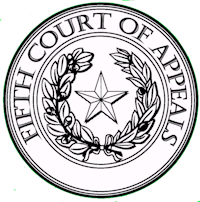 Three new Justices join the Fifth Court at the start of 2021 –
Three new Justices join the Fifth Court at the start of 2021 –
The 44th and 192nd are civil district courts and the 303rd is a family district court. When the pandemic subsides, none of the new Justices will have to change their commutes, as all three of these courts are located in the George Allen courthouse.
A temporary-injunction order about confidentiality obligations failed for lack of specificity in Wimbrey v. WorldVentures: “Paragraph 3 merely includes a list of items that the court found the covenants were intended to protect. By failing to define, explain, or otherwise describe what constitutes WorldVentures’s ‘confidential information,’ the order leaves appellants to speculate about what particular information or item would constitute ‘confidential information’ and thus fails to provide necessary notice as to how to conform their conduct.” The Court contrasted the order in McCaskill v. National Circuit Assembly, No. 05-17-01289-CV, 2018 WL 3154616, at *3 (Tex. App.—Dallas June 28, 2018, no pet.) (mem. op.).
A language change in the amended TCPA does not change the analytical framework for a basic practical point: “Before the 2019 amendments, the Texas Supreme Court held that the plaintiff’s petition is the best and all-sufficient evidence of the nature of the action for step one purposes. Hersh v. Tatum, 526 S.W.3d 462, 467 (Tex. 2017). The court said, ‘When it is clear from the plaintiff’s pleadings that the action is covered by the Act, the defendant need show no more.’ Id. We see no reason to conclude that the legislature intended to overrule Hersh when it changed the step one test from ‘shows by a preponderance of the evidence’ to “demonstrates.’ ‘Demonstrate’ means to ‘clearly show the existence or truth of (something) by giving proof or evidence.'” Brenner v. Centurion Logistics, No. 05-20-00308-CV (Dec. 10, 2020) (mem. op.).
The Fifth Court reversed a judgment based on a jury finding of fraud in BBVA Compass v. Bagwell, No. 05-18-00860-CV (Dec. 14, 2020) (mem. op.), finding inadequate evidence of justifiable reliance. (LPHS represents the Intervenor appellees in this matter).
On rehearing, the Fifth Court reversed field and allowed a post-trial pleading amendment to stand, after previously holding that the amendment was invalid. Murphy v. Mejia Arcos, No. 05-18-01342-CV (Dec. 11, 2020). The relevant motion to amend was timely as it was filed before the entry of an amended judgment.
 A new version of Tex. R. App. P. 49.3, about motions for rehearing, takes effect at the start of 2021. The new rule addresses the problem that surfaced after the 2018 elections, when many Justices who sat on a panel were no longer on their courts when the new calendar year begin. (I am quoted in this Law360 article about the rule amendment.)
A new version of Tex. R. App. P. 49.3, about motions for rehearing, takes effect at the start of 2021. The new rule addresses the problem that surfaced after the 2018 elections, when many Justices who sat on a panel were no longer on their courts when the new calendar year begin. (I am quoted in this Law360 article about the rule amendment.)
 Yes, it’s kind of a pain, but it’s your vote, your voice, and your chance to be heard as to a widely-circulated attorney directory. The link to the Super Lawyers nomination site is here, and the deadline to make your nominations is December 21, 2020.
Yes, it’s kind of a pain, but it’s your vote, your voice, and your chance to be heard as to a widely-circulated attorney directory. The link to the Super Lawyers nomination site is here, and the deadline to make your nominations is December 21, 2020.
 Vaughn-Riley v. Patterson illustrates the operation of the new, narrower definition of “matter of public concern” in the TCPA after last year’s amendments. The Fifth Court affirmed the denial of a TCPA motion in a dispute about the production of a play: “At the heart of this matter is whether the actors breached their contracts to perform the second Tyler show and the cause of the second Tyler show’s cancellation. Vaughn’s actions and communications regarding one isolated performance that did not go on as scheduled is simply not a subject of legitimate news interest; that is, a subject of general interest and of value and concern to the public.” In particular, the Court noted legislative history showing that the amendment was derived from a definition in Snyder v. Phelps, 562 U.S. 443 (2011). It rejected an argument that the performed in question was a “limited public figure,” although that argument could be available in a future case. No. 05-20-00236-CV (Dec. 2, 2020) (mem. op.).
Vaughn-Riley v. Patterson illustrates the operation of the new, narrower definition of “matter of public concern” in the TCPA after last year’s amendments. The Fifth Court affirmed the denial of a TCPA motion in a dispute about the production of a play: “At the heart of this matter is whether the actors breached their contracts to perform the second Tyler show and the cause of the second Tyler show’s cancellation. Vaughn’s actions and communications regarding one isolated performance that did not go on as scheduled is simply not a subject of legitimate news interest; that is, a subject of general interest and of value and concern to the public.” In particular, the Court noted legislative history showing that the amendment was derived from a definition in Snyder v. Phelps, 562 U.S. 443 (2011). It rejected an argument that the performed in question was a “limited public figure,” although that argument could be available in a future case. No. 05-20-00236-CV (Dec. 2, 2020) (mem. op.).
 Section 55.002 The Texas Estates Code provides: “In a contested probate or mental illness proceeding in probate court, a party is entitled to a jury trial as in other civil proceedings.” But while “the right to a jury trial ‘is inviolate and one of the greatest rights guaranteed by out Texas and United States Constitutions,’ … the right is not self executing, and even after the right is properly invoked, a party must act affirmatively to preserve a complaint concerning the right’s denial. Thus, to preserve error, a party who has properly perfected its jury trial right must either object on the record if the trial court proceeds without a jury or otherwise affirmatively indicate that it intends to stand on its perfected jury trial right.” In re Ruff Management Trust, No. 05-19-01505-CV (Dec. 3, 2020) (mem. op.). The appellant in Ruff waived any jury-trial right by not making timely objection in the trial court.
Section 55.002 The Texas Estates Code provides: “In a contested probate or mental illness proceeding in probate court, a party is entitled to a jury trial as in other civil proceedings.” But while “the right to a jury trial ‘is inviolate and one of the greatest rights guaranteed by out Texas and United States Constitutions,’ … the right is not self executing, and even after the right is properly invoked, a party must act affirmatively to preserve a complaint concerning the right’s denial. Thus, to preserve error, a party who has properly perfected its jury trial right must either object on the record if the trial court proceeds without a jury or otherwise affirmatively indicate that it intends to stand on its perfected jury trial right.” In re Ruff Management Trust, No. 05-19-01505-CV (Dec. 3, 2020) (mem. op.). The appellant in Ruff waived any jury-trial right by not making timely objection in the trial court.
Another preservation point from EYM Diner LP v. Yousef, No. 05-19-00636-CV (Nov. 24, 2020) (mem. op.) (emphasis in original), involves the structure of the charge on negligence. Defendant (ACCSC) complained that also argues it is entitled to rendition of judgment in its favor because the plaintiff (Youssef) did not object to the omission of  certain definitions from the charge, citing United Scaffolding v. Levine, 537 S.W.3d 463 (Tex. 2017). The Fifth Court disagreed:
certain definitions from the charge, citing United Scaffolding v. Levine, 537 S.W.3d 463 (Tex. 2017). The Fifth Court disagreed:
 The Fifth Court granted mandamus relief in a proceeding related to the removal of a mechanic’s lien in In re J&S Utilities, No. 05-20-00696-CV (Nov. 24, 2020) (mem. op.), holding as follows:
The Fifth Court granted mandamus relief in a proceeding related to the removal of a mechanic’s lien in In re J&S Utilities, No. 05-20-00696-CV (Nov. 24, 2020) (mem. op.), holding as follows:
Abuse of discretion. “[T]he statute allows for an evidentiary hearing regardless of whether claimant elected to file a response. Although the trial court may have had the option of disregarding J&S Utilities’ response under its local rules, the trial court did not have the right to make a determination on submission and forfeit J&S Utilities’ right to an evidentiary hearing. For these reasons, we conclude the trial court abused its  discretion by denying J&S Utilities an evidentiary hearing.” (citation omitted).
discretion by denying J&S Utilities an evidentiary hearing.” (citation omitted).
Inadequate remedy. “The legislature provided for J&S Utilities’ due process rights by the statutory procedure that was enacted, but which the trial court denied to J&S Utilities and which cannot be cured by a subsequent appeal. Mandamus relief, however, will preserve J&S Utilities’ statutory right to an evidentiary hearing on the summary motion.”
“The trial judge in this case has a reputation for running a highly efficient courtroom in which he holds all parties to strict time limits for putting on their case. The record here shows this case was no exception. The truncated ‘charge conference’ appears to be one way in which the trial judge
moves cases along and gets cases to the jury quickly. While we applaud the trial judge’s efficiency and respect for the jurors’ time, the use of a global denial of objections and requests based solely on the parties’ pretrial submission of proposed jury charges does not preserve issues of charge error for appellate review. See, e.g., Clark v. Dillard’s, Inc., 460 S.W.3d 714, 729–30 (Tex. App.—Dallas 2015, no pet.); see also Tex. R. Civ. P. 272, 273, 274. The reason is simple; a proposed jury charge filed pretrial standing alone does not meet the preservation of error requirements of rules 272, 273, and 274.”
EYM Diner LP v. Yousef, No. 05-19-00636-CV (Nov. 24, 2020) (mem. op.) (emphasis in original)
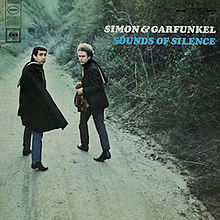 Simon & Garfunkel’s The Sounds of Silence begins: “Hello darkness, my old friend, I’ve come to talk with you again.” In In re Estate of Buchanan, however, the Fifth Court did not want to talk with the litigants again, after silence on a key issue in a previous appeal. The issue was who had the right to control certain funds based on a series of probate-court orders, which had involved a previous appeal to the Fifth Court. It held: “A reviewing court does not again pass upon any matter presented to, directly passed upon, or in effect disposed of by an earlier appeal to that court. An appellate court’s judgment is final not only in reference to the matters actually litigated, but as to all other matters the parties might have litigated and decided in the case. Thus, if James believed the trial court erred by declaring Jennifer has the superior right to the funds, he needed to raise the issue in that appeal.” No. 05-19-01473-CV (Nov. 19, 2020) (mem. op.).
Simon & Garfunkel’s The Sounds of Silence begins: “Hello darkness, my old friend, I’ve come to talk with you again.” In In re Estate of Buchanan, however, the Fifth Court did not want to talk with the litigants again, after silence on a key issue in a previous appeal. The issue was who had the right to control certain funds based on a series of probate-court orders, which had involved a previous appeal to the Fifth Court. It held: “A reviewing court does not again pass upon any matter presented to, directly passed upon, or in effect disposed of by an earlier appeal to that court. An appellate court’s judgment is final not only in reference to the matters actually litigated, but as to all other matters the parties might have litigated and decided in the case. Thus, if James believed the trial court erred by declaring Jennifer has the superior right to the funds, he needed to raise the issue in that appeal.” No. 05-19-01473-CV (Nov. 19, 2020) (mem. op.).
 In an echo (pun intended) of the Flakes litigation, the panel majority and a concurrence disagreed as to whether the appellant had adequately briefed its arguments; the majority finding that they had been appropriately presented and the concurrence holding a different view. For interested practitioners, the full text of the pertinent argument (relating to whether the underlying proceedings were an impermissible collateral attack on an earlier judgment) is reproduced in the concurrence. Eco Planet, LLC v. Ant Trading, 05-19-00239-CV (Nov. 16, 2020).
In an echo (pun intended) of the Flakes litigation, the panel majority and a concurrence disagreed as to whether the appellant had adequately briefed its arguments; the majority finding that they had been appropriately presented and the concurrence holding a different view. For interested practitioners, the full text of the pertinent argument (relating to whether the underlying proceedings were an impermissible collateral attack on an earlier judgment) is reproduced in the concurrence. Eco Planet, LLC v. Ant Trading, 05-19-00239-CV (Nov. 16, 2020).
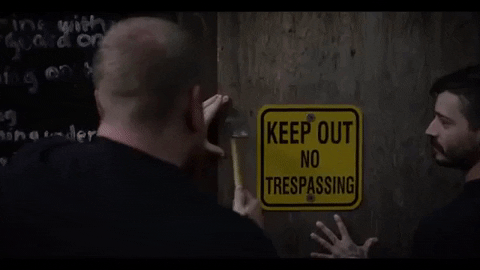 The plaintiff sought a temporary injunction against a claimed trespass; the Fifth Court reversed on proof grounds: “[T]here is no evidence in the record that appellees have suffered or will suffer any injury or that any injury they would suffer is irreparable. Certainly the cost to repair or replace the fence can be adequately compensated in damages. And, while appellees argue trespass alone is an irreparable injury, this Court’s case law does not support that proposition. Appellees did not provide the trial court with any evidence that appellant trespassing on their property would cause probable, imminent, and irreparable injury. They did not show that appellant trespassing on their property would invade the possession of their land, destroy the use and enjoyment of their land, or cause potential loss of rights in real property.” WBW Holdings v. Clamon, No. 05-20-00397-CV (Nov. 12, 2020) (mem. op.) (emphasis added, citations omitted).
The plaintiff sought a temporary injunction against a claimed trespass; the Fifth Court reversed on proof grounds: “[T]here is no evidence in the record that appellees have suffered or will suffer any injury or that any injury they would suffer is irreparable. Certainly the cost to repair or replace the fence can be adequately compensated in damages. And, while appellees argue trespass alone is an irreparable injury, this Court’s case law does not support that proposition. Appellees did not provide the trial court with any evidence that appellant trespassing on their property would cause probable, imminent, and irreparable injury. They did not show that appellant trespassing on their property would invade the possession of their land, destroy the use and enjoyment of their land, or cause potential loss of rights in real property.” WBW Holdings v. Clamon, No. 05-20-00397-CV (Nov. 12, 2020) (mem. op.) (emphasis added, citations omitted).
“GPM asserted fraudulent transfer claims against all defendants. Given that GPM’s fraudulent transfer claim against Hossein involves the same facts and issues as the fraudulent transfer claims against Marjaneh and the two entities owned by them, the claim against Hossein was not properly severable. The trial court effectively severed a party, instead of a cause of action, and abused its discretion by doing so.” In re Glast Phillips & Murray, No. 05-20-00557-CV (Nov. 12, 2020) (mem. op.).
Among other issues addressed in Wal-Mart Stores v. Xerox State & Local Solutions, Inc., the Fifth Court examined whether indemnity obligations can give rise to third-party beneficiary status, and concluded that they did not on this record. No. 05-18-01421-CV (Nov. 12, 2020) (mem. op.). (LPHS represented Xerox, the successful appellee.)
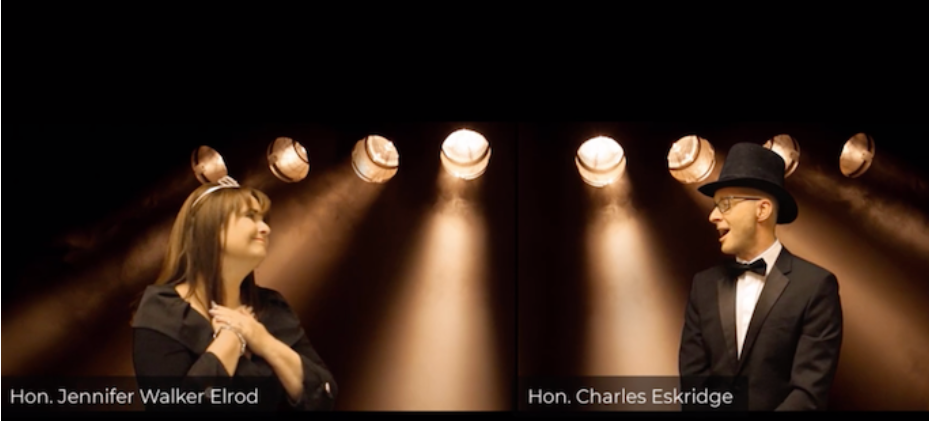 Who knew? The federal bench in Houston just released an inspiring rendition of “We’ll Be Back” from Hamilton, revised to reflect life in the COVID-19 pandemic. Bravo!
Who knew? The federal bench in Houston just released an inspiring rendition of “We’ll Be Back” from Hamilton, revised to reflect life in the COVID-19 pandemic. Bravo!
 As the Flying Dutchman (right) restlessly travels the Seven Seas, so does B.C. v. Steak N Shake travel the courts, most recently on remand from the Texas Supreme Court. The Fifth Court denied en banc review; concurrences by Justice Evans and Justice Schenck elaborated on the relevant scope of review (echoing their similar exchange in the Flakes case). Justice Evans succinctly summarized the respective positions: “[T]he record review I conducted was somewhat more than [Steak N Shake]’s view and quite a bit less than Justice Schenck’s view. … [U]ntil we receive contrary direction from the supreme court, we should continue to review the context of the record referenced by the parties, including in our review what the referenced-record contains, not merely the parties’ limited or inaccurate summary of the record.” No. 05-14-00649-CV (Aug. 3, 2020).
As the Flying Dutchman (right) restlessly travels the Seven Seas, so does B.C. v. Steak N Shake travel the courts, most recently on remand from the Texas Supreme Court. The Fifth Court denied en banc review; concurrences by Justice Evans and Justice Schenck elaborated on the relevant scope of review (echoing their similar exchange in the Flakes case). Justice Evans succinctly summarized the respective positions: “[T]he record review I conducted was somewhat more than [Steak N Shake]’s view and quite a bit less than Justice Schenck’s view. … [U]ntil we receive contrary direction from the supreme court, we should continue to review the context of the record referenced by the parties, including in our review what the referenced-record contains, not merely the parties’ limited or inaccurate summary of the record.” No. 05-14-00649-CV (Aug. 3, 2020).
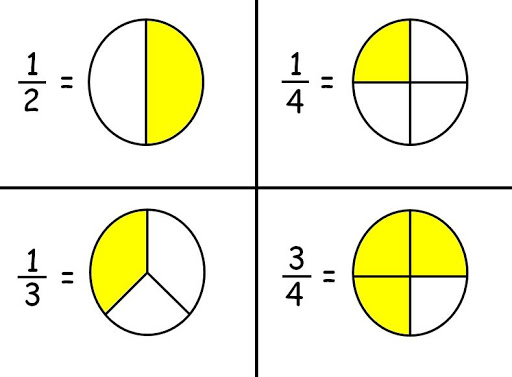 In Merrill v. Curry, the Fifth Court reversed the grant of a TCPA motion to dismiss, and then declined to address a ruling on a partial Rule 91a motion that had also been appealed: “[W[e first consider the propriety and efficiency of addressing interlocutory issues after we have reversed the judgment dismissing the case. We have not located a case in which a party pursued, and a court addressed, the denial of a partial 91a motion under these circumstances. But this situation is analogous to the analysis employed when a party seeks review of a cross motion for partial summary judgment. As courts have explained, the denial of a motion for summary judgment is generally not appealable, except when both parties move for summary judgment and the trial court grants one and denies the other. In such a case, an appellate court reviews both motions and renders the judgment the trial court should have rendered. But, when a party moves for only partial summary judgment, the exception does not apply.” No. 05-19-01229-CV (Nov. 5, 2020) (mem. op.) (citations omitted, emphasis added).
In Merrill v. Curry, the Fifth Court reversed the grant of a TCPA motion to dismiss, and then declined to address a ruling on a partial Rule 91a motion that had also been appealed: “[W[e first consider the propriety and efficiency of addressing interlocutory issues after we have reversed the judgment dismissing the case. We have not located a case in which a party pursued, and a court addressed, the denial of a partial 91a motion under these circumstances. But this situation is analogous to the analysis employed when a party seeks review of a cross motion for partial summary judgment. As courts have explained, the denial of a motion for summary judgment is generally not appealable, except when both parties move for summary judgment and the trial court grants one and denies the other. In such a case, an appellate court reviews both motions and renders the judgment the trial court should have rendered. But, when a party moves for only partial summary judgment, the exception does not apply.” No. 05-19-01229-CV (Nov. 5, 2020) (mem. op.) (citations omitted, emphasis added).
The Texas Lawbook reports (not paywalled) the intermediate court of appeals election results, with these numbers on the Dallas races with roughly 95% completion:
 Kaufman v. AmeriHealth Lab reviewed an important practical issue–does active participation in a TRO proceeding waive a potential special appearance? After reviewing the handful of Texas cases on the point, the Court concluded that a waiver occurred when, during the TRO hearing: “Kaufman’s counsel appeared without limiting his appearance and actively made arguments on Kaufman’s behalf, which included arguing he was not a signatory to the consulting agreement. AmeriHealth reminded the court that the parties retired to the jury room, at the court’s suggestion, to work out the expedited discovery requests. After their discussions, they proceeded on the record. The second half of the hearing in our appellate record is titled, ‘Rule 11
Kaufman v. AmeriHealth Lab reviewed an important practical issue–does active participation in a TRO proceeding waive a potential special appearance? After reviewing the handful of Texas cases on the point, the Court concluded that a waiver occurred when, during the TRO hearing: “Kaufman’s counsel appeared without limiting his appearance and actively made arguments on Kaufman’s behalf, which included arguing he was not a signatory to the consulting agreement. AmeriHealth reminded the court that the parties retired to the jury room, at the court’s suggestion, to work out the expedited discovery requests. After their discussions, they proceeded on the record. The second half of the hearing in our appellate record is titled, ‘Rule 11
Agreement Proceeding.'” No. 05-20-00504-CV (Oct. 30, 2020) (mem. op.).
 “Jordan ignores a key component required for the exercise of a right to petition, namely, a communication under [TCPRC] section 27.001(4). … Contrary to Jordan’s argument, a nonmovant’s reference to a judicial proceeding in a petition does not necessarily establish that a movant has engaged in any communication constituting an exercise of a right to petition under section 27.001(4) or that the nonmovant’s claims are based on such communication.” Jordan v. JP Bent Tree, No. 05-19-01263-CV (Oct. 19, 2020).
“Jordan ignores a key component required for the exercise of a right to petition, namely, a communication under [TCPRC] section 27.001(4). … Contrary to Jordan’s argument, a nonmovant’s reference to a judicial proceeding in a petition does not necessarily establish that a movant has engaged in any communication constituting an exercise of a right to petition under section 27.001(4) or that the nonmovant’s claims are based on such communication.” Jordan v. JP Bent Tree, No. 05-19-01263-CV (Oct. 19, 2020).
Continuing to drive home the point from the recent Glassdoor litigation, the Fifth Court again reminded that: “Because the limitations period had run on the Estate’s anticipated claims before it filed its Rule 202 petition, the petition was moot, and the trial court should have dismissed the petition for want of jurisdiction.” In re Estate of Tobolowsky, No. 05-19-00073-CV (Oct. 20, 2020) (mem. op.).
 Bickham v. Dallas County “consider[ed] whether ‘election watchers’—persons appointed to observe the conduct of an election under Chapter 33 of the Texas Election Code— have standing to pursue claims against certain election officials for alleged violations of chapter 33 and the Texas Administrative Code.” The panel majority concluded that they did not: “Appellants are not petition signers, and unlike the petition signers in [other cases], they have not shown an election interest that is distinct from voters at large. Although they allege impurity in the process, that interest is not distinct from voters at large, all of whom are presumed to want the election to be
Bickham v. Dallas County “consider[ed] whether ‘election watchers’—persons appointed to observe the conduct of an election under Chapter 33 of the Texas Election Code— have standing to pursue claims against certain election officials for alleged violations of chapter 33 and the Texas Administrative Code.” The panel majority concluded that they did not: “Appellants are not petition signers, and unlike the petition signers in [other cases], they have not shown an election interest that is distinct from voters at large. Although they allege impurity in the process, that interest is not distinct from voters at large, all of whom are presumed to want the election to be  conducted in compliance with the law.”
conducted in compliance with the law.”
A dissent saw the issue differently, reasoning: “The Legislature created the office of watcher, at least in substantial part, for the watcher to be available publicly to attest to the process, including in any later contest for office. … Whether one focuses on the right to express one’s opinion on the fairness of the process to the public via the print or electronic media or simply on the right to participate as a witness at a trial, either interest is legally cognizable.” No. 05-20-00560-CV (Oct. 23, 2020).
In a second visit to the Fifth Court on a discovery dispute involving claims of attorney-client privilege, the Court held: “In this case, neither party has put its attorney fees at issue. The Estate simply suspects that Topletz should be able to make payment on the judgment because he apparently has been able to pay his attorneys throughout this litigation. But that circumstance fails to fall within the kind of acceptable scenario that would permit discovery of the attorney fee information sought here.” In re Topletz, No. 05-20-00634-CV (Oct. 15, 2020) (mem. op.). The Court also reminded: “[N]either the rules of civil procedure nor case law requires evidence in support of an assertion relating to discovery when evidence is unnecessary to decide the matter. Here, evidence is not necessary to show that the requested information is not discoverable because this Court has already determined, as a matter of law, it is not.”
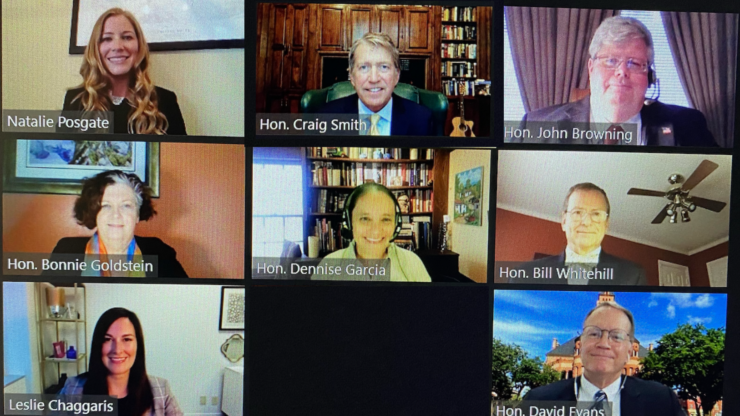 The Texas Lawbook recently held a candidate forum with all of the incumbents and challengers in this year’s three races for the Fifth Court. Its report on the forum is not behind a paywall and is interesting and informative reading.
The Texas Lawbook recently held a candidate forum with all of the incumbents and challengers in this year’s three races for the Fifth Court. Its report on the forum is not behind a paywall and is interesting and informative reading.
Mandamus relief was granted to compel a trial-court ruling about a motion for judgment nunc pro tunc in a criminal case when: “[R]elator’s third motion for judgment nunc pro tunc has been on file for roughly eleven months. Relator requested a ruling on the motion in the trial court approximately nine months ago. Although an unsigned memorandum was sent to relator, it stated that no ruling has yet been made. Under these circumstances, the trial court failed to fulfill its ministerial duty to rule on relator’s motion within a reasonable time, and relator lacks an adequate appellate remedy.” In re Williams, No. 05-20-00369-CV (Oct. 15, 2020) (mem. op.).
I was on a panel today for a great DAYL CLE program on jury charge conferences; you can see the one-hour presentation here!
 In the context of a motion to extend an interlocutory-appeal deadline, the Fifth Court reminded: “We have previously concluded that intentionally waiting for a trial court to hear a motion for new trial is not a reasonable explanation.” Careington Int’l Corp. v. First Call Telemedicine LLC, No. 05-20-00841-CV (Oct. 12, 2020) (mem. op.).
In the context of a motion to extend an interlocutory-appeal deadline, the Fifth Court reminded: “We have previously concluded that intentionally waiting for a trial court to hear a motion for new trial is not a reasonable explanation.” Careington Int’l Corp. v. First Call Telemedicine LLC, No. 05-20-00841-CV (Oct. 12, 2020) (mem. op.).
 Like a submarine occasionally surfacing from the deep, the concept of factual suffiency review (as distinct from legal sufficiency) occasionally emerges in family-law cases about parental termination. While In re M.T. unanimously affirms a termination judgment, a concurrence argued that the evidence on one of the statutory grounds was factually insufficient. No. 05-20-00450-CV (Oct. 5, 2020) (mem. op.).
Like a submarine occasionally surfacing from the deep, the concept of factual suffiency review (as distinct from legal sufficiency) occasionally emerges in family-law cases about parental termination. While In re M.T. unanimously affirms a termination judgment, a concurrence argued that the evidence on one of the statutory grounds was factually insufficient. No. 05-20-00450-CV (Oct. 5, 2020) (mem. op.).
A lurid invasion-of-privacy dispute offers a procedural reminder and substantive conclusion:
BGC v. MYR, No. 05-20-00318-CV (Oct. 9. 2020) (mem. op.).
 An unusual venue dispute led to a thorough review of the policies underlying the concept of “dominant jurisdiction” and the first-filed rule: “In resolving this dispute we must decide whether a plaintiff who initiates separate lawsuits in the same county against different defendants can claim dominant jurisdiction in one of those cases, after agreeing to transfer venue of that case to a different county and subsequently joining the defendant from the case still pending in the transferor county. Relators … assert that the transferred case lacks dominance over the interrelated case still pending in the original venue. We agree and conditionally grant the writ.” In re Equinor, No. 05-20-00578-CV (Oct. 7, 2020) (mem. op.).
An unusual venue dispute led to a thorough review of the policies underlying the concept of “dominant jurisdiction” and the first-filed rule: “In resolving this dispute we must decide whether a plaintiff who initiates separate lawsuits in the same county against different defendants can claim dominant jurisdiction in one of those cases, after agreeing to transfer venue of that case to a different county and subsequently joining the defendant from the case still pending in the transferor county. Relators … assert that the transferred case lacks dominance over the interrelated case still pending in the original venue. We agree and conditionally grant the writ.” In re Equinor, No. 05-20-00578-CV (Oct. 7, 2020) (mem. op.).
 In Marble Ridge Capital v. Neiman-Marcus Group, the Fifth Court affirmed the denial of a TCPA motion in a defamation action brought by Neiman-Marcus, pre-bankruptcy, against an investment fund. Among other holdings, the Court thoroughly surveyed Texas law about the judicial-communications privilege and held: “Based on this record, we conclude Marble Ridge did not satisfy its burden under section 27.005(d) regarding the judicial-communications privilege because Marble Ridge was not actually contemplating and giving serious consideration to a judicial proceeding when making its September 18, September 21, and September 25, 2018 communications.” No. No. 05-19-00443-CV (Sept. 30, 2020) (emphasis added). LPHS represented Neiman-Marcus in this matter.
In Marble Ridge Capital v. Neiman-Marcus Group, the Fifth Court affirmed the denial of a TCPA motion in a defamation action brought by Neiman-Marcus, pre-bankruptcy, against an investment fund. Among other holdings, the Court thoroughly surveyed Texas law about the judicial-communications privilege and held: “Based on this record, we conclude Marble Ridge did not satisfy its burden under section 27.005(d) regarding the judicial-communications privilege because Marble Ridge was not actually contemplating and giving serious consideration to a judicial proceeding when making its September 18, September 21, and September 25, 2018 communications.” No. No. 05-19-00443-CV (Sept. 30, 2020) (emphasis added). LPHS represented Neiman-Marcus in this matter.
 The movants in GN Ventures v. Stanley won their argument that the TCPA applied to a motion in a dispute about arbitrability: “[E]ven though a request for a pre-arbitration temporary restraining order and temporary injunction merely seeks equitable remedies, and is not an independent cause of action, such a request is a ‘filing that requests . . . equitable relief’ and, therefore, a ‘legal action’ as defined by section 27.001(6). And because in this case, there is no underlying cause of action and appellants’ TCPA motion solely sought dismissal of the request for temporary restraining order and temporary injunction, that requested injunctive relief is the ‘claim’ the elements of which the Stanley affiliates must demonstrate a prima facie case by clear and specific evidence in the second step of the TCPA analysis we discuss below.” (citations omitted). Despite that win, however, they lost their motion because the nonmovants established a prima facie case for their requested injunctive relief. No. 05-19-01076-CV (Oct. 2, 2020).
The movants in GN Ventures v. Stanley won their argument that the TCPA applied to a motion in a dispute about arbitrability: “[E]ven though a request for a pre-arbitration temporary restraining order and temporary injunction merely seeks equitable remedies, and is not an independent cause of action, such a request is a ‘filing that requests . . . equitable relief’ and, therefore, a ‘legal action’ as defined by section 27.001(6). And because in this case, there is no underlying cause of action and appellants’ TCPA motion solely sought dismissal of the request for temporary restraining order and temporary injunction, that requested injunctive relief is the ‘claim’ the elements of which the Stanley affiliates must demonstrate a prima facie case by clear and specific evidence in the second step of the TCPA analysis we discuss below.” (citations omitted). Despite that win, however, they lost their motion because the nonmovants established a prima facie case for their requested injunctive relief. No. 05-19-01076-CV (Oct. 2, 2020).
An inartfully-drafted part of the expunction statute produced a remarkable 7-6 split of the en banc Fifth Court in Ex Parte Ferris, No. 05-19-00835-CV (Oct. 2, 2020). Charles Ferris pleaded guilty to DWI in 2015. Four years later, a jury found him not guilty in another DWI matter. Ferris sought expunction of the case in which he was acquitted, and ran headlong into a particularly awkward bit of statutory drafting.
 If his two DWI cases formed a “criminal episode” as defined by Tex. Penal Code § 3.01, he could not receive expunction. The statute defines “criminal episode” as:
If his two DWI cases formed a “criminal episode” as defined by Tex. Penal Code § 3.01, he could not receive expunction. The statute defines “criminal episode” as:
… the commission of two or more offenses, regardless of whether the harm is directed toward or inflicted upon more than one person or item of property, under the following circumstances:
(1) the offenses are committed pursuant to the same transaction or pursuant to two or more transactions that are connected or constitute a common scheme or plan; or
(2) the offenses are the repeated commission of the same or similar offenses
(emphasis added). Part (1) did not apply, so the case turned on part (2).
The majority opinion held that application of part (2) to Ferris’s two DWI cases would create an absurd result: “Such a cabined view of what constitutes a ‘criminal episode’ creates an absurd, nonsensical result wherein a single ‘criminal episode’ would engulf two DWI arrests, which (i) share no common or continuing pattern of facts; (ii) are impossible to prosecute as multiple prosecutions under Chapter 3 of the Texas Penal Code (through joinder); and (iii) could not share a concurrent sentence.” (Justice Petersen, joined  by Justices Myers, Molberg, Osborne, Reichek, Nowell, and Carlyle).
by Justices Myers, Molberg, Osborne, Reichek, Nowell, and Carlyle).
The dissent reasoned that the majority had incorrectly blurred the two parts of the statute together, “when the plain meaning of the unambiguous text of section 3.01(2): ‘criminal episode’ means the repeated commission of the same or similar offense without limitation of time, place, same or related transaction, or conspiracy.” (Justice Evans, joined by Chief Justice Burns and Justices Whitehill, Schenck, Partida-Kipness, and Browning).
 If the details of the virgule are not obscure enough for you, then you will love this wonderful article from Smithsonian Magazine about the “pilcrow,” a/k/a the paragraph symbol.
If the details of the virgule are not obscure enough for you, then you will love this wonderful article from Smithsonian Magazine about the “pilcrow,” a/k/a the paragraph symbol.
 The Fifth Court found that ecclesiastical abstention barred a claim about expulsion from a private school: “Parents’ claims are premised on allegations that Prince of Peace failed to hire qualified staff and appropriately supervise its staff’s interactions with Students, including by failing to report suspected abuse of Students by its staff. Defense of these
The Fifth Court found that ecclesiastical abstention barred a claim about expulsion from a private school: “Parents’ claims are premised on allegations that Prince of Peace failed to hire qualified staff and appropriately supervise its staff’s interactions with Students, including by failing to report suspected abuse of Students by its staff. Defense of these  claims rests on Prince of Peace’s internal and religiously-informed policies and code of conduct. Judicial resolution of the claims would thus require impermissible intrusion in Prince of Peace’s management of these matters.” In re Prince of Peace Christian School, No. 05-20-00680-CV (Sept. 23, 2020) (mem. op.).
claims rests on Prince of Peace’s internal and religiously-informed policies and code of conduct. Judicial resolution of the claims would thus require impermissible intrusion in Prince of Peace’s management of these matters.” In re Prince of Peace Christian School, No. 05-20-00680-CV (Sept. 23, 2020) (mem. op.).
 Adding to the Fifth Court’s thorough discussion of exactly what constitutes a “finding of fact” in In re AEJ, the Court recently reminded: “Though the parties’ appellate arguments describe oral ‘findings’ recited by the trial court, a trial
Adding to the Fifth Court’s thorough discussion of exactly what constitutes a “finding of fact” in In re AEJ, the Court recently reminded: “Though the parties’ appellate arguments describe oral ‘findings’ recited by the trial court, a trial
court’s oral statements from the bench do not generally constitute findings of fact. ‘Statements made by a trial court outside of properly filed written
findings and conclusions do not limit an appellate court’s review.’” WorldVentures Marketing v. Travel to Freedom, No. 05-20-00169-CV (Sept. 23, 2020) (mem. op.) (citations omitted).
 If arguing that the plaintiff’s pleadings judicially admit arbitrability, be sure the record all lines up: “[T[]o the extent WorldVentures seeks to rely on a ‘judicial admission’ that TTF ‘consented to the 2019 agreements,’ the record does not show that the section 7.1 quoted in TTF’s petition necessarily came from the 2019 documents. The petition is silent as to what version of WorldVentures’ Policies & Procedures the quotation is from. Although the quoted section does not appear in the 2011 version, there were at least six additional versions in effect between 2012 and 2019. The record includes only the arbitration provision portions of those documents and does not show whether the quoted section 7.1 was unique to the 2019 version. Thus, the petition does not contain a ‘clear, deliberate, and unequivocal” statement of fact regarding consent to the 2019 agreements.'” WorldVentures Marketing v. Travel to Freedom, No. 05-20-00169-CV (Sept. 23, 2020) (mem. op.).
If arguing that the plaintiff’s pleadings judicially admit arbitrability, be sure the record all lines up: “[T[]o the extent WorldVentures seeks to rely on a ‘judicial admission’ that TTF ‘consented to the 2019 agreements,’ the record does not show that the section 7.1 quoted in TTF’s petition necessarily came from the 2019 documents. The petition is silent as to what version of WorldVentures’ Policies & Procedures the quotation is from. Although the quoted section does not appear in the 2011 version, there were at least six additional versions in effect between 2012 and 2019. The record includes only the arbitration provision portions of those documents and does not show whether the quoted section 7.1 was unique to the 2019 version. Thus, the petition does not contain a ‘clear, deliberate, and unequivocal” statement of fact regarding consent to the 2019 agreements.'” WorldVentures Marketing v. Travel to Freedom, No. 05-20-00169-CV (Sept. 23, 2020) (mem. op.).
 Cornwell v. Scothorn, discussed yesterday, also addressed whether quasi-estoppel could be a defense to a claimed breach of fiduciary duty. The Fifth Court affirmed on the basis of the charge submitted while also finding legally-sufficient evidence of reliance–the element that distinguishes “quasi-estoppel” from equitable estoppel. No. 05-18-00799-CV (Sept. 17, 2020) (mem. op.).
Cornwell v. Scothorn, discussed yesterday, also addressed whether quasi-estoppel could be a defense to a claimed breach of fiduciary duty. The Fifth Court affirmed on the basis of the charge submitted while also finding legally-sufficient evidence of reliance–the element that distinguishes “quasi-estoppel” from equitable estoppel. No. 05-18-00799-CV (Sept. 17, 2020) (mem. op.).
 Cornwell v. Scothorn addressed the interplay between the opposing sides’ fraud and promissory estoppel claim. It distinguished El Paso Healthcare System v. Piping Rock Corp., 939 S.W.2d 695 (Tex. App.—El Paso 1997, writ denied), as “address[ing] whether an unclean hands defense barred recovery on a promissory
Cornwell v. Scothorn addressed the interplay between the opposing sides’ fraud and promissory estoppel claim. It distinguished El Paso Healthcare System v. Piping Rock Corp., 939 S.W.2d 695 (Tex. App.—El Paso 1997, writ denied), as “address[ing] whether an unclean hands defense barred recovery on a promissory  estoppel claim. Piping Rock does not stand for the proposition that Stewart’s fraud in this case negated the Scothorns’ promissory estoppel claims. Ro the extent the jury found Stewart committed fraud and damaged McKinney $9427.86 in out-of-pocket damages and $8000 in damages for loss of credit reputation, we cannot conclude this finding precluded the jury from also finding that the Scothorns were entitled to damages of $201,318.04 on their promissory estoppel claim against Cornwell and McKinney.” No. 05-18-00799-CV (Sept. 17, 2020) (mem. op.).
estoppel claim. Piping Rock does not stand for the proposition that Stewart’s fraud in this case negated the Scothorns’ promissory estoppel claims. Ro the extent the jury found Stewart committed fraud and damaged McKinney $9427.86 in out-of-pocket damages and $8000 in damages for loss of credit reputation, we cannot conclude this finding precluded the jury from also finding that the Scothorns were entitled to damages of $201,318.04 on their promissory estoppel claim against Cornwell and McKinney.” No. 05-18-00799-CV (Sept. 17, 2020) (mem. op.).
 Tom Tillotson sought to appeal two turnover orders without posting a supersedeas bond. (The Fifth Court’s opinion reminds: “A turnover order in the nature of a mandatory injunction is a final judgment that may be superseded.”) The Court agreed with him that “the amounts [in the relevant accounts] do not constitute compensatory damages,” but disagreed as to the effect of that conclusion. Because the turnover order “functions as a mandatory injunction,” it “constitutes a judgment for something other than money or an interest in property and, accordingly [Tex. R. App. P.] 24.2(a)(3) controls” rather than Rule 24.2(a)(1) about the appeal of money judgments. “Under rule 24.2(a)(3), the trial court must set a bond that will adequately protect the judgment creditor against loss or damage that the appeal might cause.” In re Estate of Tillotson, No. 05-20-00258-CV (Sept. 15, 2020) (mem. op.)
Tom Tillotson sought to appeal two turnover orders without posting a supersedeas bond. (The Fifth Court’s opinion reminds: “A turnover order in the nature of a mandatory injunction is a final judgment that may be superseded.”) The Court agreed with him that “the amounts [in the relevant accounts] do not constitute compensatory damages,” but disagreed as to the effect of that conclusion. Because the turnover order “functions as a mandatory injunction,” it “constitutes a judgment for something other than money or an interest in property and, accordingly [Tex. R. App. P.] 24.2(a)(3) controls” rather than Rule 24.2(a)(1) about the appeal of money judgments. “Under rule 24.2(a)(3), the trial court must set a bond that will adequately protect the judgment creditor against loss or damage that the appeal might cause.” In re Estate of Tillotson, No. 05-20-00258-CV (Sept. 15, 2020) (mem. op.)
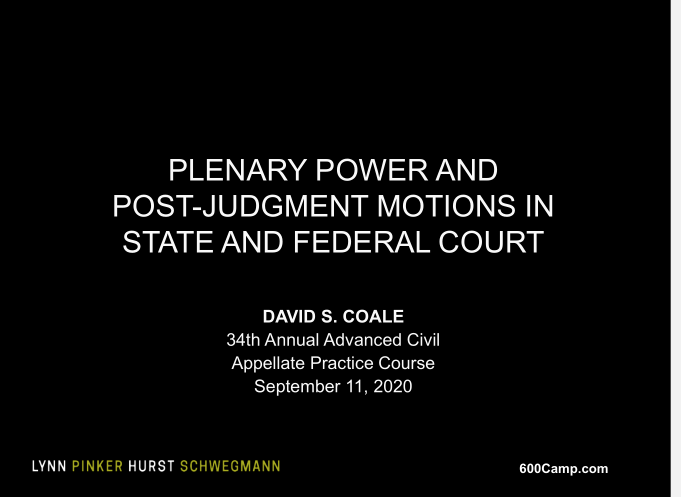 Last week I spoke (virtually) at the State Bar’s Advanced Civil Appellate Course. My topic was post-verdict motions in state in federal court; here is a copy of my PowerPoint.
Last week I spoke (virtually) at the State Bar’s Advanced Civil Appellate Course. My topic was post-verdict motions in state in federal court; here is a copy of my PowerPoint.
 Recall from a a recent post that the Fifth Court has recognized the COVID-19 pandemic as a factor to consider in evaluating motions for continuance. That same opinion reminds that trial courts have substantial discretion to conduct virtual trials in an appropriate case:
Recall from a a recent post that the Fifth Court has recognized the COVID-19 pandemic as a factor to consider in evaluating motions for continuance. That same opinion reminds that trial courts have substantial discretion to conduct virtual trials in an appropriate case:
We also hold that the trial court did not abuse its discretion by overruling Relator’s objection to trial via videoconference. In its emergency orders, the supreme court expressly granted trial courts the discretion, “subject only to constitutional limitations” and “without a participant’s consent,” to require that all participants in hearings, depositions, “or other proceeding[s] of any kind” participate remotely, “such as by teleconferencing, videoconferencing, or other means.” Emergency Order 1, ¶ 2(b); Emergency Order 17, ¶ 3(c). Although the emergency orders do not specify bench trials, these would easily fall under the category of “other proceeding[s] of any kind.” Relator has not claimed that a bench trial by videoconference would violate any of his constitutional rights, so the trial court did not abuse its discretion in requiring Relator to participate in this manner.
(citations omitted).
 Orange Cup Drive In LLC v. Mid-Continent Casualty Co. illustrates the application of the rules about the grounds for summary judgment motions:
Orange Cup Drive In LLC v. Mid-Continent Casualty Co. illustrates the application of the rules about the grounds for summary judgment motions:
 Thus: “Where the motion is silent on grounds for summary judgment for the extracontractual claims—and particularly where the motion specifically recites that the claims will be addressed by a separate motion later—we cannot determine whether ‘the omitted cause of action is precluded as a matter of law by other grounds raised in the case.'”
Thus: “Where the motion is silent on grounds for summary judgment for the extracontractual claims—and particularly where the motion specifically recites that the claims will be addressed by a separate motion later—we cannot determine whether ‘the omitted cause of action is precluded as a matter of law by other grounds raised in the case.'”No. 05-19-00014-CV (Aug. 28, 2020) (mem. op.)
 The paternal-rights case of In re AEJ fully reviewed the somewhat-untidy law about Tex. R. Civ. P. 299 and its consequences, and made these observations and conclusions. As to the requirements of the rule:
The paternal-rights case of In re AEJ fully reviewed the somewhat-untidy law about Tex. R. Civ. P. 299 and its consequences, and made these observations and conclusions. As to the requirements of the rule:
The Court found that on this record, the trial court made adequate findings in a memorandum ruling (observing, in a footnote, that the Court was not bound by the lable  placed on findings by the trial court). The Court also found no harm from any lack of findings, noting that the record and issues were well-defined and straightforward. It concluded with a practical observation: “And finally, in this case the remedy for a failure to make findings would be to abate the appeal and direct the trial judge to file findings on endangerment and best interest—presumably the very findings she has already made twice.” No. 05-20-00340-CV (Aug. 31, 2020).
placed on findings by the trial court). The Court also found no harm from any lack of findings, noting that the record and issues were well-defined and straightforward. It concluded with a practical observation: “And finally, in this case the remedy for a failure to make findings would be to abate the appeal and direct the trial judge to file findings on endangerment and best interest—presumably the very findings she has already made twice.” No. 05-20-00340-CV (Aug. 31, 2020).
The TCPA applied in Keel Recovery v. Tri County Adjusters because the suit was based on a police report–an act of petition. As to the prima facie case, the Fifth Court held:
“[W]hile Arion may have had a fiduciary duty to her employer, TCA, that does not mean she owed any fiduciary duty to Peters as owner of TCA. Arguably, to the extent Arion owed TCA a fiduciary duty, that duty was fulfilled by reporting Peters’ criminal activity that could subject TCA to negative consequences.”
No. 05-19-00686-CV (Sept. 4, 2020) (mem. op.).
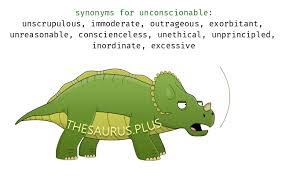 The trial court did not abuse its discretion in finding an arbitration agreement procedurally unconscionable when: “Herman testified in his affidavits that the meeting with appellant [law firm]’s employee was less than ten minutes. Herman made a brief statement to the employee explaining the accident, and the employee told Herman to sign a document. Herman asked the employee if the document was a contract, and the employee answered, ‘No, we are just gathering information,’ that the Daspit firm would review the facts, and that a lawyer would call him. The employee was ‘very impatient’ and told Herman ‘he could not stay to explain things.’ Herman also testified that when he signed the document, he ‘did not understand . . . that it contained an arbitration clause.’ Herman argues appellant’s employee did not permit Herman to read the arbitration provision before signing the document.” Daspit Law Firm v. Herman, No. 05-19-00615-CV (Aug. 25, 2020) (mem. op.)
The trial court did not abuse its discretion in finding an arbitration agreement procedurally unconscionable when: “Herman testified in his affidavits that the meeting with appellant [law firm]’s employee was less than ten minutes. Herman made a brief statement to the employee explaining the accident, and the employee told Herman to sign a document. Herman asked the employee if the document was a contract, and the employee answered, ‘No, we are just gathering information,’ that the Daspit firm would review the facts, and that a lawyer would call him. The employee was ‘very impatient’ and told Herman ‘he could not stay to explain things.’ Herman also testified that when he signed the document, he ‘did not understand . . . that it contained an arbitration clause.’ Herman argues appellant’s employee did not permit Herman to read the arbitration provision before signing the document.” Daspit Law Firm v. Herman, No. 05-19-00615-CV (Aug. 25, 2020) (mem. op.)
In a 1981 survey of family-court judges, D Magazine memorably quoted a lawyer: “If all judges were light bulbs, Judge Annette Stewart would be a floodlight – 200 watts . . . ” The first woman to serve as a Justice of the Fifth Court recently passed away. 
The Texas Supreme Court recently entered an order amending (effective Jan. 1, 2021) several rules of civil procedure about discovery, including:
Thanks to my LPHS colleague John Adams for his careful review of this order.
 Batson issues are doubly complex–they involve (1) appellate scrutiny of a discretionary decision made “live” under time constraints, and (2) inquiry into motive based on objective manifestations of the motive in juror questions, strike patterns, etc. It is no surprise, then, that reasonable minds can differ, as they did in United Rentals v. Evans. The panel found no Batson violation after a detailed review of the relevant record; three Justices dissented from the denial of en banc review, keying on counsel’s statement that “[w]e know from our focus groups that the African-American female is the most favorable juror for this case for whatever reason.” No. 05-18-00665-CV (Aug. 18, 2020).
Batson issues are doubly complex–they involve (1) appellate scrutiny of a discretionary decision made “live” under time constraints, and (2) inquiry into motive based on objective manifestations of the motive in juror questions, strike patterns, etc. It is no surprise, then, that reasonable minds can differ, as they did in United Rentals v. Evans. The panel found no Batson violation after a detailed review of the relevant record; three Justices dissented from the denial of en banc review, keying on counsel’s statement that “[w]e know from our focus groups that the African-American female is the most favorable juror for this case for whatever reason.” No. 05-18-00665-CV (Aug. 18, 2020).
 The London Underground reminds its riders to “Mind the Gap” so they do not trip when entering or exiting a train. The Fifth Circuit’s new typography places a notable gap between paragraphs and footnotes. While this sort of line-spacing does not have a technical label like “kerning,” it is nevertheless an important part of the overall look and feel of a piece of legal writing. What are your thoughts on inter-paragraph line spacing?
The London Underground reminds its riders to “Mind the Gap” so they do not trip when entering or exiting a train. The Fifth Circuit’s new typography places a notable gap between paragraphs and footnotes. While this sort of line-spacing does not have a technical label like “kerning,” it is nevertheless an important part of the overall look and feel of a piece of legal writing. What are your thoughts on inter-paragraph line spacing?
 After an earlier dispute about the merits of an interlocutory stay, the Fifth Court reached the substantive issue of arbitrability in Baby Dolls v. Sotero, a personal-injury lawsuit about a serious car accident involving two dancers after they left work. The key question was the interplay of the terms “License” and “Agreement” in the relevant contract; the panel majority concluded: “On this record, we conclude the trial court could have properly determined the parties’ minds could not have met regarding the contract’s subject matter and all its essential terms such that the contract is not an enforceable agreement. Consequently, the trial court did not abuse its discretion by denying the motions to compel arbitration.” (citations omitted). A dissent disputed whether that conclusion was a proper legal basis to deny a motion to compel arbitration, and would have reached a different result about the construction of the parties’ contract. No. 05-19-01443-CV (Aug. 21, 2020) (mem. op.)
After an earlier dispute about the merits of an interlocutory stay, the Fifth Court reached the substantive issue of arbitrability in Baby Dolls v. Sotero, a personal-injury lawsuit about a serious car accident involving two dancers after they left work. The key question was the interplay of the terms “License” and “Agreement” in the relevant contract; the panel majority concluded: “On this record, we conclude the trial court could have properly determined the parties’ minds could not have met regarding the contract’s subject matter and all its essential terms such that the contract is not an enforceable agreement. Consequently, the trial court did not abuse its discretion by denying the motions to compel arbitration.” (citations omitted). A dissent disputed whether that conclusion was a proper legal basis to deny a motion to compel arbitration, and would have reached a different result about the construction of the parties’ contract. No. 05-19-01443-CV (Aug. 21, 2020) (mem. op.)
 In re: Sakyi reminds: “the unique and serious circumstances created by the COVID pandemic require flexibility and adaptability in all aspects of our legal system.” the Court went on to grant mandamus relief about the the denial of a motion for continuance, observing: “In this case, all factors weigh in favor of concluding that the trial court’s denial of the continuance was an abuse of discretion. First, this case is not old; at the time the continuance was sought, the case had been on file for less than a year. Second, the discovery sought is central to the underlying divorce suit since RPI’s marriages, if overlapping, may affect the determination of what property is in the marital estate at issue and raise equitable considerations of possible fraud. Indeed, the trial court acknowledged that the conflicting marriage dates created an issue of fact. Third, Relator’s counsel submitted an affidavit describing her diligent efforts to obtain the necessary discovery before trial.” No. 05-20-00574-CV (Aug. 20, 2020) (mem. op.)
In re: Sakyi reminds: “the unique and serious circumstances created by the COVID pandemic require flexibility and adaptability in all aspects of our legal system.” the Court went on to grant mandamus relief about the the denial of a motion for continuance, observing: “In this case, all factors weigh in favor of concluding that the trial court’s denial of the continuance was an abuse of discretion. First, this case is not old; at the time the continuance was sought, the case had been on file for less than a year. Second, the discovery sought is central to the underlying divorce suit since RPI’s marriages, if overlapping, may affect the determination of what property is in the marital estate at issue and raise equitable considerations of possible fraud. Indeed, the trial court acknowledged that the conflicting marriage dates created an issue of fact. Third, Relator’s counsel submitted an affidavit describing her diligent efforts to obtain the necessary discovery before trial.” No. 05-20-00574-CV (Aug. 20, 2020) (mem. op.)
 Sometimes to state the issue is to decide it. For example, the Fifth Court’s opinion in Ruff v. Ruff began: “A pivotal question we address is whether a party can initiate an arbitration proceeding pursuant to a specific arbitration agreement, demand that a signatory to that agreement be compelled to participate in that arbitration, and then disavow the resulting award by alleging that he (the initiating party) did not agree to arbitrate according to that arbitration agreement.” The Court answered that question “no,” reviewing the invited-error and several estoppel doctrines. No. 05-18-00326-CV (Aug. 11, 2020).
Sometimes to state the issue is to decide it. For example, the Fifth Court’s opinion in Ruff v. Ruff began: “A pivotal question we address is whether a party can initiate an arbitration proceeding pursuant to a specific arbitration agreement, demand that a signatory to that agreement be compelled to participate in that arbitration, and then disavow the resulting award by alleging that he (the initiating party) did not agree to arbitrate according to that arbitration agreement.” The Court answered that question “no,” reviewing the invited-error and several estoppel doctrines. No. 05-18-00326-CV (Aug. 11, 2020).
Damages were not established in In the Interest of MGG, No. 05-19-00777-CV (Aug. 10, 2020) (mem. op.), when:
“Ms. Gatewood does not dispute that Mr. Gustafson and his employer paid the withheld amounts to the IRS to cover the taxes from the transactions. Nor does she dispute that, if Mr. Gustafson instead paid her 100% of the gross proceeds, she would have to pay those taxes. The only theory of harm Ms. Gatewood advanced in the trial is that, by withholding and paying taxes based on his own tax rate instead of hers, Mr. Gustafson forced her to pay taxes at a higher rate. The proper measure of damages for that harm, however, is the difference between the taxes she would have paid at her purportedly lower tax rate and the amount Mr. Gustafson paid the IRS. To prove Mr. Gustafson harmed her in that manner, Ms. Gatewood had to prove there was a disparity between their tax rates.
Ms. Gatewood refused to turn over her tax records during discovery and chose not to present evidence establishing her tax rate at the trial. The only record evidence directly touching upon Ms. Gatewood’s tax rate is her affirmative response to a hypothetical question asking whether she was ‘at least hopeful’ her tax rate would be lower if she received the money Mr. Gustafson paid the IRS. That conclusory response, premised on Ms. Gatewood’s hope or belief, is insufficient to show Ms. Gatewood’s tax rate would have been lower.” (emphasis added).
 In re Smith held that the statutory stay of certain discovery in health-liability claims did not apply to policies that nursing homes are required to make publicly available. As to the availability of mandamus relief, the Court observed: “It is well settled that mandamus relief is appropriate when the trial court
In re Smith held that the statutory stay of certain discovery in health-liability claims did not apply to policies that nursing homes are required to make publicly available. As to the availability of mandamus relief, the Court observed: “It is well settled that mandamus relief is appropriate when the trial court
abuses its discretion by ordering discovery precluded by section 74.351(s). However, it is not clear whether the same is true when the trial court prohibits discovery that the statute permits.” (emphasis in original, citation omitted). The Court concluded that it was appropriate because of the potential effect on the statutorily-required expert report. (While the Court cites, inter alia, a general proposition from the Texas Supreme Court about mandamus relief, it remains to be seen how much weight this case will have in other settings without a similar expert report requirement.) No. 05-20-00497-CV (Aug. 12, 2020) (mem. op.).
 McGuire-Sobrino v. TX Cannalliance LLC presents a mini-course on effective protection of business information. Cannalliance sued McGuire-Sobrino, a former contractor, for restricting its access to its website and other digital assets. The Fifth Court addressed
McGuire-Sobrino v. TX Cannalliance LLC presents a mini-course on effective protection of business information. Cannalliance sued McGuire-Sobrino, a former contractor, for restricting its access to its website and other digital assets. The Fifth Court addressed
No. 05-19-01261-CV (Aug. 10, 2020) (mem. op.).
Palladium Metal Recycling v. 5G Metals reminds: “Interlocutory appeals are only available from orders denying TCPA motions, not from orders granting them.” As to that granted motion, the Court also observed in a footnote: “Notably, in the event the trial court’s ruling has not become final and appealable, the trial court retains jurisdiction to vacate its order regarding St. Charles should it decide to do so.” No. 05-19-00482-CV (July 28, 2020) (mem. op.)
 The Fifth Court reversed an award of sanctions, based on the trial court’s exercise of its inherent power, in In re Estate of Powell: “The trial court’s orders reflect that it made the attorney’s fees award as a sanction for Douglas’s and Putnam’s bad faith violation of the rule 11 agreement. Although there is some evidence supporting the trial court’s finding that Douglas and Putnam acted in bad faith, the trial court did not also find or conclude that Douglas’s and Putnam’s bad faith conduct significantly interfered with the court’s ‘legitimate exercise of its core functions.’ Consequently, we conclude the trial court abused its discretion by imposing the sanction against Douglas and Putnam.” No. 05-19-00689-CV (Aug. 4, 2020) (mem. op.) (citations omitted) (applying Union Carbide Corp. v. Martin, 349 S.W.3d 137 (Tex. App.–Dallas 2011, no pet.)
The Fifth Court reversed an award of sanctions, based on the trial court’s exercise of its inherent power, in In re Estate of Powell: “The trial court’s orders reflect that it made the attorney’s fees award as a sanction for Douglas’s and Putnam’s bad faith violation of the rule 11 agreement. Although there is some evidence supporting the trial court’s finding that Douglas and Putnam acted in bad faith, the trial court did not also find or conclude that Douglas’s and Putnam’s bad faith conduct significantly interfered with the court’s ‘legitimate exercise of its core functions.’ Consequently, we conclude the trial court abused its discretion by imposing the sanction against Douglas and Putnam.” No. 05-19-00689-CV (Aug. 4, 2020) (mem. op.) (citations omitted) (applying Union Carbide Corp. v. Martin, 349 S.W.3d 137 (Tex. App.–Dallas 2011, no pet.)
 “[Tex. R. Civ. P.] 11 provides that ‘no agreement between attorneys or parties touching any suit pending will be enforced unless it be in writing, signed and filed with the papers as part of the record, or unless it be made in open court and entered of record.’ The purpose of the rule is to relieve the courts of the necessity of resolving disputes over the terms of oral agreements relating to pending suits. As explained in [Anderson v. Cocheu], however, in enforcing rule 11 [agreements] ‘the Texas Supreme Court has been mindful of the fact that the rule may be said to abridge the substantive right of persons to enter into oral contracts.’ Consequently, courts have balanced the purpose of the rule with the ability to make oral agreements, resulting in recognition of certain equitable exceptions to rule 11’s writing requirement. One exception to the writing requirement arises when the oral agreement is undisputed. ‘In cases where the existence of the agreement and its terms are not disputed, the agreement may be enforced despite its literal noncompliance with the rule.’” In re Estate of Powell, No. 05-19-00689-CV (Aug. 4, 2020) (mem. op.).
“[Tex. R. Civ. P.] 11 provides that ‘no agreement between attorneys or parties touching any suit pending will be enforced unless it be in writing, signed and filed with the papers as part of the record, or unless it be made in open court and entered of record.’ The purpose of the rule is to relieve the courts of the necessity of resolving disputes over the terms of oral agreements relating to pending suits. As explained in [Anderson v. Cocheu], however, in enforcing rule 11 [agreements] ‘the Texas Supreme Court has been mindful of the fact that the rule may be said to abridge the substantive right of persons to enter into oral contracts.’ Consequently, courts have balanced the purpose of the rule with the ability to make oral agreements, resulting in recognition of certain equitable exceptions to rule 11’s writing requirement. One exception to the writing requirement arises when the oral agreement is undisputed. ‘In cases where the existence of the agreement and its terms are not disputed, the agreement may be enforced despite its literal noncompliance with the rule.’” In re Estate of Powell, No. 05-19-00689-CV (Aug. 4, 2020) (mem. op.).
 In re Commitment of Barnes, No. 05-19-00702-CV (Aug. 5, 2020) (mem. op.), involved a challenge to a voir dire limitation. The trial was to determine whether Barnes should be civilly committed as a sexual predator. His counsel sought to ask these voir dire questions, which the trial court found to be improper “commitment” questions:
In re Commitment of Barnes, No. 05-19-00702-CV (Aug. 5, 2020) (mem. op.), involved a challenge to a voir dire limitation. The trial was to determine whether Barnes should be civilly committed as a sexual predator. His counsel sought to ask these voir dire questions, which the trial court found to be improper “commitment” questions:
“If you hear evidence of a pedophilic disorder diagnosis, if you hear evidence of child victims, are you going to automatically assume that the person has a behavioral abnormality as defined by what you hear in this case?”
– and –
“If you are presented with evidence by an expert that the diagnosis of a person is pedophilic disorder, are you going to automatically assume that that person has a condition that by [a]ffecting the emotional or volitional capacity predisposes the person to commit a sexually violent offense to the extent that they become a menace to the
health and safety of another person?
The Fifth Court found that this ruling was erroneous, but also no harm because, inter alia, a similar question was allowed: “If you hear evidence of child victims,
is that going to make it to where you turn everything off and don’t listen to the rest
of the facts and you are done? Anyone?”
 To review the propriety of the question, the Court applied a 3-part test based on the Court of Criminal Appeals’ Standefer opinion:
To review the propriety of the question, the Court applied a 3-part test based on the Court of Criminal Appeals’ Standefer opinion:
 The ABA House of Delegates has recently adopted a comprehensive set of best practices for litigation funding–an important topic in modern law practice.
The ABA House of Delegates has recently adopted a comprehensive set of best practices for litigation funding–an important topic in modern law practice.
 The plaintiffs in In re Outreach Housing sought to enforce a (revived) 2006 default judgment that was not final under the applicable standards. The Fifth Court granted mandamus relief as to the trial court’s denial of the defendants’ motion to stay. It found an abuse of discretion in that decision, with irreparable
The plaintiffs in In re Outreach Housing sought to enforce a (revived) 2006 default judgment that was not final under the applicable standards. The Fifth Court granted mandamus relief as to the trial court’s denial of the defendants’ motion to stay. It found an abuse of discretion in that decision, with irreparable  consequences arising from the denial of a meaningful appeal from the 2006 judgment, and some parties’ lack of a meaningful trial. The Court acknowledged a technical point about a potential interlocutory appeal from the denial of the motion, but found that matter too speculative to deny mandamus relief in these circumstances. No. 05-20-00431-CV (July 30, 2020).
consequences arising from the denial of a meaningful appeal from the 2006 judgment, and some parties’ lack of a meaningful trial. The Court acknowledged a technical point about a potential interlocutory appeal from the denial of the motion, but found that matter too speculative to deny mandamus relief in these circumstances. No. 05-20-00431-CV (July 30, 2020).
The Governor has directed that certain government flags fly at half-staff on August 1 in the memory of Justice Bridges.
(An expanded version of this post appears this week in the Texas Lawbook.)
Cyberpunk stories often describe the physical world as meatspace, as distinct from the online world of cyberspace. Litigation forces courts to consider the connection between the two “spaces” when a party contests the exercise of personal jurisdiction based on online activity. While precise definition of a website’s functionality can involve technical terms, the jurisdiction analysis involves familiar concepts, as illustrated by Shopstyle, Inc. & Popsugar, Inc. v. Rewardstyle, Inc.:
Purposeful availment. “[W]hen using the Shop feature, the user cannot purchase products on the PopSugar website but instead follows links to the websites of affiliated third-party retailers. In other words, the ‘user cannot consummate a commercial transaction online without accessing and logging-into a third-party website.'”
Operative facts. “Whether PopSugar’s website is available in Texas or whether links to Texas-based retailers are available on PopSugar’s website is unrelated to the operative facts as alleged by rewardStyle. The record contains no allegations or evidence of which we are aware that the alleged operative conduct occurred in Texas or that it has anything to do with Texas, apart from the fact that rewardStyle and one of its influencers are located here.”
 Third-party activity. “[E]even if another party creating ShopStyle links and adding them to allegedly misappropriated images was considered an affirmative act by ShopStyle (and we are not so concluding), permitting hyperlinks to the websites of third-party Texas-based retailers where products can be purchased “would not demonstrate, by itself, that [ShopStyle] controls the third-party sufficiently for sales from the third-party’s website to constitute ‘contacts’ by [ShopStyle].”
Third-party activity. “[E]even if another party creating ShopStyle links and adding them to allegedly misappropriated images was considered an affirmative act by ShopStyle (and we are not so concluding), permitting hyperlinks to the websites of third-party Texas-based retailers where products can be purchased “would not demonstrate, by itself, that [ShopStyle] controls the third-party sufficiently for sales from the third-party’s website to constitute ‘contacts’ by [ShopStyle].”
No. 05-19-00736-CV (July 21, 2020) (mem. op.). Of procedural interest, this case arose from a presuit discovery request under Tex. R. Civ. P. 202.
 The legal structure of local government has received great scrutiny this year as the COVID-19 pandemic has forced all levels of state government to review the emergency powers granted by the Texas Government Code. Less-trendy but also-fundamental aspects of local government operation were at issue in Carruth v. Henderson, when a citizen sought mandamus relief to require the City of Plano to consider a referendum petition about the City’s comprehensive development plan. The Fifth Court expressed sympathy for the City’s position, but found that under the applicable statutes, it had a ministerial duty to accept the petition as “neither the [City] Charter nor the general law has withdrawn comprehensive plans either expressly or by necessary implication from the field in which the referendum process operates …” No. 05-19-01195-CV (July 22, 2020). I am quoted in an excellent column about this situation by Sharon Grigsby in the July 28 Dallas Morning News.
The legal structure of local government has received great scrutiny this year as the COVID-19 pandemic has forced all levels of state government to review the emergency powers granted by the Texas Government Code. Less-trendy but also-fundamental aspects of local government operation were at issue in Carruth v. Henderson, when a citizen sought mandamus relief to require the City of Plano to consider a referendum petition about the City’s comprehensive development plan. The Fifth Court expressed sympathy for the City’s position, but found that under the applicable statutes, it had a ministerial duty to accept the petition as “neither the [City] Charter nor the general law has withdrawn comprehensive plans either expressly or by necessary implication from the field in which the referendum process operates …” No. 05-19-01195-CV (July 22, 2020). I am quoted in an excellent column about this situation by Sharon Grigsby in the July 28 Dallas Morning News.
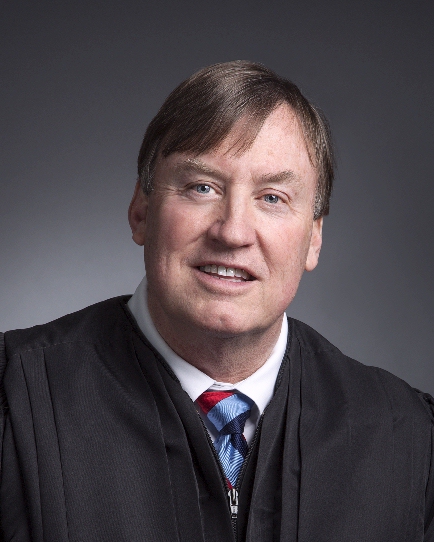 Long-serving Justice David Bridges was killed this weekend when his car was struck by a drunk driver. This shocking news is a loss for all North Texas.
Long-serving Justice David Bridges was killed this weekend when his car was struck by a drunk driver. This shocking news is a loss for all North Texas.
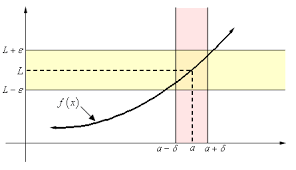 In addition to a thorough review of Batson law as applied to Hispanic potential jurors, Murphy v. Mejia Arcos provides a powerful example of the rules about post-trial pleading amendments.
In addition to a thorough review of Batson law as applied to Hispanic potential jurors, Murphy v. Mejia Arcos provides a powerful example of the rules about post-trial pleading amendments.
On the one hand, “pursuant to rules 63 and 66 of the Texas Rules of Civil Procedure, a trial court must allow a postverdict amendment that increases the amount of damages sought in the pleadings to that found by the jury unless the opposing party presents evidence of prejudice or surprise.” (emphasis added)
But at the same time, “a trial court cannot grant a motion for leave to amend the pleadings after the court signs the judgment.”
Accordingly, the trial court abused its discretion when it (1) signed a final judgment, (2) granted the plaintiff’s motion to amend the pleadings, and then (3) signed a new judgment without an order setting aside the first one. “Because the trial court never signed a written order vacating the August 9, 2018 final judgment, its oral pronouncement [about vacating that judgment] was ineffective, so the August 9,
2018 judgment continued in force and effect. . . . [A]t all times after August 9, 2018, there has always been a final judgment in this case. Therefore, the trial court did not follow the guiding principles of law that it cannot grant leave to file an amended pleading after judgment.”
As a result, the judgment was reduced to $200,000 (the maximum amount sought specified by the plaintiff’s trial pleading) from the $1,000,000 awarded in the jury’s verdict. No. 05-18-01342-CV (July 17, 2020).
 The principle is easy enough to state — because the mandatory-venue statute about injunctive relief “is limited to suits ‘in which the relief sought is purely or primarily injunctive[,] . . . it does not apply when the injunctive relief is ancillary to the other relief sought . . . where the injunctive relief is requested simply to maintain the status
The principle is easy enough to state — because the mandatory-venue statute about injunctive relief “is limited to suits ‘in which the relief sought is purely or primarily injunctive[,] . . . it does not apply when the injunctive relief is ancillary to the other relief sought . . . where the injunctive relief is requested simply to maintain the status
quo pending resolution of the lawsuit.” In re: Zidan shows that reasonable minds can differ about its application, however. The majority opinion saw the plaintiff’s request for injunctive relief as ancillary to the central dispute about the governance of a business entity; the dissent saw it as sufficiently central to implicated the statute. The Fifth Court’s judgment conditionally granted mandamus relief with respect to a Collin County judge’s decision to abate a first-filed case in favor of a Harris County matter. No. 05-20-00595-CV (July 15, 2020) (mem. op.)
 Please check out my new podcast, Coale Mind, where once a week I talk about constitutional and other legal issues of the day. This forum lets me get into more detail than other media appearances, while also approaching issue from a less technical perspective than blogging and other professional writing. I hope you enjoy it and choose to subscribe! Available on Spotify, Apple, and other such services.
Please check out my new podcast, Coale Mind, where once a week I talk about constitutional and other legal issues of the day. This forum lets me get into more detail than other media appearances, while also approaching issue from a less technical perspective than blogging and other professional writing. I hope you enjoy it and choose to subscribe! Available on Spotify, Apple, and other such services.
 While jury selection is a critical and at times outcome-determinative part of trial, appellate opinions on voir dire issues are scarce – trial judges have considerable discretion in such matters and harm is difficult to establish. All the more reason for trial lawyers to carefully review Murphy v. Mejia Arcos, a painstaking analysis of Batson challenges to peremptory strikes of Hispanic jurors. Carefully applying the precedent in the area, the Fifth Court found no abuse of discretion by the trial court in sustaining two such challenges in a personal-injury trial. The analysis is of obvious statewide significance for Texas practice, offering a practical summary of the current Batson procedural framework, and having important policy consequences for an infrequently-reviewed aspect of civil trial practice. No. 05-18-01342-CV (July 17, 2020).
While jury selection is a critical and at times outcome-determinative part of trial, appellate opinions on voir dire issues are scarce – trial judges have considerable discretion in such matters and harm is difficult to establish. All the more reason for trial lawyers to carefully review Murphy v. Mejia Arcos, a painstaking analysis of Batson challenges to peremptory strikes of Hispanic jurors. Carefully applying the precedent in the area, the Fifth Court found no abuse of discretion by the trial court in sustaining two such challenges in a personal-injury trial. The analysis is of obvious statewide significance for Texas practice, offering a practical summary of the current Batson procedural framework, and having important policy consequences for an infrequently-reviewed aspect of civil trial practice. No. 05-18-01342-CV (July 17, 2020).
“Care Tecture contends the trial court could not consider the [Mediated Settlement Agreement] because it was not physically attached to the motion or an affidavit. Matheson argues that the MSA was properly before the court because it was on file with the court at the time of the summary judgment hearing, referenced in the motion for summary judgment, and authenticated by the affidavits. We agree with Matheson. See Kastner v. Jenkens & Gilchrist, 231 S.W.3d 571, 581 (Tex.App.—Dallas 2007, no pet.) (noting that the rules “do not require that summary judgment evidence be physically attached to the motion”). Care Tecture v. Matheson Commercial Properties, No. 19-00591-CV (June 30, 2020) (mem. op.)
 Shylock sought to exact a pound of flesh from a debtor in The Merchant of Venice (right, played by Al Pacino). In Selinger v. City of McKinney, a form of taking called an “exaction” was at issue, when “[Plaintiffs] alleged that the City denied Selinger’s plat because he refused to agree to a contingent $482,000 payment as a condition of plat approval. Those facts amount to an exaction … .” The conditional nature of an exaction leads to unusual questions about ripeness and mootness, as well as governmental-immunity issues, all of which were resolved by the Fifth Court substantially in favor of the Plaintiffs. No. 05-19-00545-CV (July 1, 2020) (mem. op.)
Shylock sought to exact a pound of flesh from a debtor in The Merchant of Venice (right, played by Al Pacino). In Selinger v. City of McKinney, a form of taking called an “exaction” was at issue, when “[Plaintiffs] alleged that the City denied Selinger’s plat because he refused to agree to a contingent $482,000 payment as a condition of plat approval. Those facts amount to an exaction … .” The conditional nature of an exaction leads to unusual questions about ripeness and mootness, as well as governmental-immunity issues, all of which were resolved by the Fifth Court substantially in favor of the Plaintiffs. No. 05-19-00545-CV (July 1, 2020) (mem. op.)
 Armbrister’s car was repossessed. She sued the lender because it had unlawfully refused to deduct her payment from a Federal Government Federal Reserve Bank account. She had acquired the rights to this account, she alleged, because of her work for the FBI, the NSA, and the Defense Department on an artificial intelligence team; those agencies had authorized her by neural communication to pay all of her bills from an account at the Federal Reserve. Unfortunately for Armbrister, her claim did not satisfy the demands of Tex. R. Civ. P. 91a, and the Fifth Court affirmed. Armbirster v. American Honda Finance Corp., No. 05-19-00593-CV (July 10, 2020) (mem. op.) The opinion did not address whether neural communication satisfies the statute of frauds, or whether the relevant government agencies may have immunity defenses to fraudulent-inducement claims by Armbrister.
Armbrister’s car was repossessed. She sued the lender because it had unlawfully refused to deduct her payment from a Federal Government Federal Reserve Bank account. She had acquired the rights to this account, she alleged, because of her work for the FBI, the NSA, and the Defense Department on an artificial intelligence team; those agencies had authorized her by neural communication to pay all of her bills from an account at the Federal Reserve. Unfortunately for Armbrister, her claim did not satisfy the demands of Tex. R. Civ. P. 91a, and the Fifth Court affirmed. Armbirster v. American Honda Finance Corp., No. 05-19-00593-CV (July 10, 2020) (mem. op.) The opinion did not address whether neural communication satisfies the statute of frauds, or whether the relevant government agencies may have immunity defenses to fraudulent-inducement claims by Armbrister.
 On the facts of California Commercial Investment Group v. Herrington, “even
On the facts of California Commercial Investment Group v. Herrington, “even
though the charges were dropped, [Defendant’s] statements made to police are protected as an exercise of the right to petition and of free speech.” The Fifth Court went on to find that no prima facie case was made on the plaintiff’s malicious-prosecution and defamation claims, and reversed the trial court’s denial of the defendant’s TCPA motion to dismiss. No. 05-19-00805-CV (July 8, 2020) (mem. op.).
 The initials “JM” appeared on drawings ARCO (a consulting firm) prepared for products designed by Kendall Harter (an inventor and entrepreneur). The appellant in KBIDC Investments v. Zuru Toys, a case about the design of water-balloon devices, argued that Josh Malone worked for ARCO and was exposed to Harter’s ideas at ARCO, noting: “that the initials ‘JM’ appear on drawings ARCO prepared for other products designed by Harter, including drawings for a sandwich maker and a water-balloon gun. Appellant also points to Malone’s Linkedin.com profile, which states that his technical skills include ‘CAD,’ computer-aided design. Appellant also asserts, without citing any evidence other than Harter’s affidavit, that Malone’s house was ‘within a 30-minute drive of ARCO’s offices’ in Farmer’s Branch. Appellant also asserts that ARCO had no employees with the initials ‘JM’ at that time.” The Fifth Court saw this evidence differently, finding: “This evidence is too indefinite and uncertain to show Malone had access to Harter’s designs. It does not constitute circumstantial evidence that Malone worked at ARCO, that he had access to Harter’s provisional patent application or drawings, or that he misappropriated Harter’s trade secrets.” No. 05-19-00159-CV (June 26, 2020) (mem. op.) – and on rehearing (Oct. 9, 2020).
The initials “JM” appeared on drawings ARCO (a consulting firm) prepared for products designed by Kendall Harter (an inventor and entrepreneur). The appellant in KBIDC Investments v. Zuru Toys, a case about the design of water-balloon devices, argued that Josh Malone worked for ARCO and was exposed to Harter’s ideas at ARCO, noting: “that the initials ‘JM’ appear on drawings ARCO prepared for other products designed by Harter, including drawings for a sandwich maker and a water-balloon gun. Appellant also points to Malone’s Linkedin.com profile, which states that his technical skills include ‘CAD,’ computer-aided design. Appellant also asserts, without citing any evidence other than Harter’s affidavit, that Malone’s house was ‘within a 30-minute drive of ARCO’s offices’ in Farmer’s Branch. Appellant also asserts that ARCO had no employees with the initials ‘JM’ at that time.” The Fifth Court saw this evidence differently, finding: “This evidence is too indefinite and uncertain to show Malone had access to Harter’s designs. It does not constitute circumstantial evidence that Malone worked at ARCO, that he had access to Harter’s provisional patent application or drawings, or that he misappropriated Harter’s trade secrets.” No. 05-19-00159-CV (June 26, 2020) (mem. op.) – and on rehearing (Oct. 9, 2020).
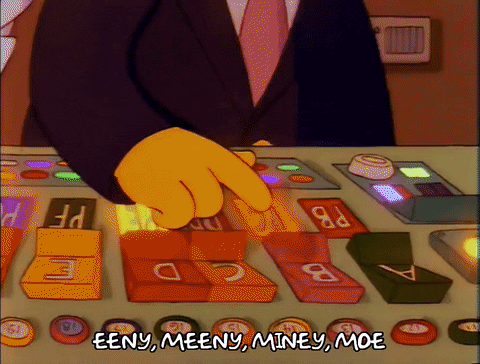 The appellant in KBIDC Investments v. Zuru Toys contended that the appellees failed to segregate attorneys’-fee evidence among claims involving the Texas Theft Liability Act (compensable) and those for misappropriation of trade secrets and unfair competition (not compensable). The Fifth Court observed that a basic holding of Tony Gullo Motors v. Chapa, 212 S.W.3d 299 (Tex. 2006)–that “it is only when discrete legal services advance both a recoverable and unrecoverable claim that they are so intertwined that they need not be segregated”–was not overruled by Horizon Health Corp. v. Acadia Healthcare Co., 520 S.W.3d 848 (Tex. 2017), which as a factual matter found a failure to properly segregate fees related to a TTLA claim. Here, “[Appellees’] argument is that all of their attorney’s fees were reasonable and necessary to their prevailing on appellant’s TTLA claim. Their attorney testified to that fact. He also testified that the attorney’s fees would have been the same if the TTLA claim had been the only claim. Appellant does not identify any invoice entry that did not apply to the TTLA claim.” No. 05-19-00159-CV (June 26, 2020) (mem. op.).
The appellant in KBIDC Investments v. Zuru Toys contended that the appellees failed to segregate attorneys’-fee evidence among claims involving the Texas Theft Liability Act (compensable) and those for misappropriation of trade secrets and unfair competition (not compensable). The Fifth Court observed that a basic holding of Tony Gullo Motors v. Chapa, 212 S.W.3d 299 (Tex. 2006)–that “it is only when discrete legal services advance both a recoverable and unrecoverable claim that they are so intertwined that they need not be segregated”–was not overruled by Horizon Health Corp. v. Acadia Healthcare Co., 520 S.W.3d 848 (Tex. 2017), which as a factual matter found a failure to properly segregate fees related to a TTLA claim. Here, “[Appellees’] argument is that all of their attorney’s fees were reasonable and necessary to their prevailing on appellant’s TTLA claim. Their attorney testified to that fact. He also testified that the attorney’s fees would have been the same if the TTLA claim had been the only claim. Appellant does not identify any invoice entry that did not apply to the TTLA claim.” No. 05-19-00159-CV (June 26, 2020) (mem. op.).
 “…the power granted by section 22.221(a) of the government code is not a power that is granted to prevent damage to the appellant pending appeal.’ ‘That purpose is served by the statutes allowing appellants to supersede judgments by posting an appropriate bond.’ Rather, the power to issue a writ of injunction is limited to the purpose of protecting appellate jurisdiction.
“…the power granted by section 22.221(a) of the government code is not a power that is granted to prevent damage to the appellant pending appeal.’ ‘That purpose is served by the statutes allowing appellants to supersede judgments by posting an appropriate bond.’ Rather, the power to issue a writ of injunction is limited to the purpose of protecting appellate jurisdiction.
Here, relators assert that the pending foreclosure threatens this Court’s jurisdiction over their existing appeal. But unlike the cases cited by relators involving appeals of interlocutory orders, the foreclosure of the property at issue does not moot their claims in the appeal and, thus, does not implicate the Court’s jurisdiction over the appeal.” In re Day Investment Group, No. 05-20-00643-CV (July 2, 2020) (mem. op.) (citation omitted, emphasis added).
When not engaged in good-natured banter about typeface or proper spacing after periods, the appellate community often argues about the right place to put citations to authority. The traditional approach places them “inline,” along with the text of the legal argument. A contrarian viewpoint, primarily advanced by Bryan Garner, argues that citations should be placed in footnotes.
Has modern technology provided a third path? Professor Rory Ryan of Baylor Law School advocates “fadecites,” reasoning:
A brief using this approach would look like this on a first read:
(A longer example is available on Professor Ryan’s Google Drive.) The reader can quickly skim over citations while reviewing the legal argument. Additionally, assuming that the court’s technology allows it, case citations can be arranged to become more visible if the reader wants to know more information. Modern .pdf technology allows a citation to become darker and more visible if the reader places the cursor on it. A hyperlink to the cited authority could also be made available.
This idea offers an ingenious solution to a recurring challenge in writing good, accessible briefs. I’d be interested in your thoughts and Professor Ryan would be as well.
This is a crosspost from 600Hemphill, which follows business litigation in the Texas Supreme Court.
 The Texas Supreme Court recently summarized the sometimes-confusing law about preservation of objections an an expert’s testimony:
The Texas Supreme Court recently summarized the sometimes-confusing law about preservation of objections an an expert’s testimony:
“Requiring an admissibility objection to the reliability of expert testimony gives the proponent a fair opportunity to cure any deficiencies and prevents trial and appeal by ambush. Thus, when an expert opinion ‘is admitted in evidence without objection, it may be considered probative evidence even if the basis of the opinion is unreliable.’ But conclusory or speculative opinion testimony is not relevant evidence because it does not make the existence of a material fact more or less probable. Evidence that lacks probative value will not support a jury finding even if admitted without objection. ‘Bare, baseless opinions will not support a judgment even if there is no objection to their admission in evidence.'”
Pike v. Texas EMC Management LLC, No. 17-0557 (June 19, 2020). While this quote eliminates the case citations in the original, the cited authorities provide further discussion of these principle and illustrate their applications in specific settings.
This is a crosspost from 600Hemphill, which follows business litigation in the Texas Supreme Court.
In Pike v. Texas EMC Mangagment LLC, ”‘Value’ was defined in the jury charge as ‘”Market Value,”’ the amount that would be paid in cash by a willing buyer who desires to buy, but is not required to buy, to a willing seller who desires to sell, but is under no necessity of selling.’”
 Expert testimony sought to establish a $4.1 million value for the relevant plant and equipment, which the Texas Supreme Court rejected for three reasons:
Expert testimony sought to establish a $4.1 million value for the relevant plant and equipment, which the Texas Supreme Court rejected for three reasons:
“First, … [e]vidence of the purchase price of the Partnership’s property is insufficient under that measure because it does not establish the fair market value of the property at a different time.”
“Second, …[c]ourts employing an actual-value measure have held that ‘[f]rom that starting point, adjustments are made for wear and tear, depreciation, and other pertinent factors.’ Having examined the record, we disagree with the plaintiffs that [the expert] took anything other than purchase price—and a 20% escalation factor—into account in opining about the value of the plant and equipment.”
“Third, [the expert] did not attempt to tie the value of the plant to the market value of the
Partnership, which was the only measure of damages in the jury charge. He did not address whether any debt encumbered the plant, for example, or otherwise testify regarding how loss of the plant and equipment impacted the value of the Partnership as a whole.” (emphasis added, citations omitted)
The Court also rejected efforts to corroborate the expert’s testimony with lay-opinion testimony by an owner, because that testimony was based on book rather than actual value. Foreclosure-sale price was similarly irrelevant. No. 17-0557 (June 19, 2020).
 In re Perl granted mandamus relief as to jurisdictional discovery requests.
In re Perl granted mandamus relief as to jurisdictional discovery requests.
As to scope, it reasoned (as to one set of the requests): “Interrogatory No. 2’s request for “details of how business is conducted between” Relators and Cake Craft, Interrogatory No. 8’s request for Relators’ “work, role and/or services” to Cake Craft, Request for Production No. 5’s requests for documents “regarding your engagement and business relationship” with Cake Craft, and Request for Production No. 15’s request for documents “that detail the inspecting and auditing services that you performed on the Cake Craft defendants” do not focus on any jurisdictional fact. None of these requests are confined to any of the three purposeful availment factors: Relators’ own activities, aimed at Texas, or the specific benefit, advantage, or profit Relators would earn from a Texas relationship.” (emphasis added)
As to adequate remedy, in response to the argument that “the only injury claimed is the ordinary expense of litigation,” the Court observed: “[A]llowing discovery of a potential claim against a defendant over which the court would not have personal jurisdiction denies him the protection Texas procedure would otherwise afford.” No. 05-20-00170-CV (June 2, 2020). LPHS represented the real parties in interest in this case.
 On June 12, the Fifth Court revisited the ongoing litigation about Downtown Dallas’s much-reviled Confederate memorial, by granting the City’s emergency motion to put the memorial in “archival storage” in light of protests in the downtown area.
On June 12, the Fifth Court revisited the ongoing litigation about Downtown Dallas’s much-reviled Confederate memorial, by granting the City’s emergency motion to put the memorial in “archival storage” in light of protests in the downtown area.
 Lunch-buying did not create arbitrator bias in Texas Health Management v. Healthspring: “THM next claims the Tribunal was partial because it received free beverages and meals from Healthspring every day of the hearing. THM claims it received this information from a Decem
Lunch-buying did not create arbitrator bias in Texas Health Management v. Healthspring: “THM next claims the Tribunal was partial because it received free beverages and meals from Healthspring every day of the hearing. THM claims it received this information from a Decem ber 5, 2017 letter from Healthspring to the Tribunal. However, on the first day of arbitration, Appel acknowledged, “I understand, Mr. Leckerman, you ordered in lunch.” Leckerman, Healthspring’s attorney, confirmed lunch would arrive around noon. THM did not question or object to Healthspring providing lunch.” (footnote omitted).
ber 5, 2017 letter from Healthspring to the Tribunal. However, on the first day of arbitration, Appel acknowledged, “I understand, Mr. Leckerman, you ordered in lunch.” Leckerman, Healthspring’s attorney, confirmed lunch would arrive around noon. THM did not question or object to Healthspring providing lunch.” (footnote omitted).
This is a cross-post from 600 Hemphill
 It’s not a Texas Supreme Court case, but Title Source Inc. v. HouseCanary Inc. is a jury charge case worth reviewing. In it, the San Antonio Court of Appeals reversed a $700+ million judgment based in part on a classic Casteel issue. In reviewing the jury instruction about the plaintiff’s claim for theft of trade secrets, the Court observed:
It’s not a Texas Supreme Court case, but Title Source Inc. v. HouseCanary Inc. is a jury charge case worth reviewing. In it, the San Antonio Court of Appeals reversed a $700+ million judgment based in part on a classic Casteel issue. In reviewing the jury instruction about the plaintiff’s claim for theft of trade secrets, the Court observed:
“[T]he jury was also instructed that ‘improper means’ includes bribery, espionage, and ‘breach or inducement of a breach of a duty to maintain secrecy, to limit use, or to prohibit discovery of a trade secret.’ This instruction tracks TUTSA’s definition of ‘improper means’ and is therefore a correct statement of law. But HouseCanary conceded at oral argument that there is no evidence TSI acquired the trade secrets through bribery, and our review of the record reveals no evidence that TSI acquired the trade secrets through espionage. Because those theories are not supported by the evidence, they should have been omitted from the ‘improper means’ definition that was submitted to the jury.“
(emphasis added, citations omitted). The Court went on to cite Texas Supreme Court authority stating that while “a jury charge submitting liability under a statute should track the statutory language as closely as possible,” the statutory language “may be slightly altered to conform the issue to the evidence presented,” and that “[a] broad-form question cannot be used to put before the jury issues that have no basis in the law or the evidence.”
UDF v. Megatel illustrates the Fifth Court’s approach to “public concern” as defined by the TCPA: “[W]hile the alleged communications may have been motivated by a climate of public scrutiny created by criticisms of the UDF Parties’ business practices, the communications at issue did not in any way address the substance of either those criticisms or the resulting public scrutiny. Instead, they addressed only the termination of contracts . . . as a means for the UDF Parties to achieve liquidity which is not a matter ‘of political, social, or other concern to the community.'” No. 05-19-00647-CV (May 29, 2020) (mem. op.) (citation omitted).
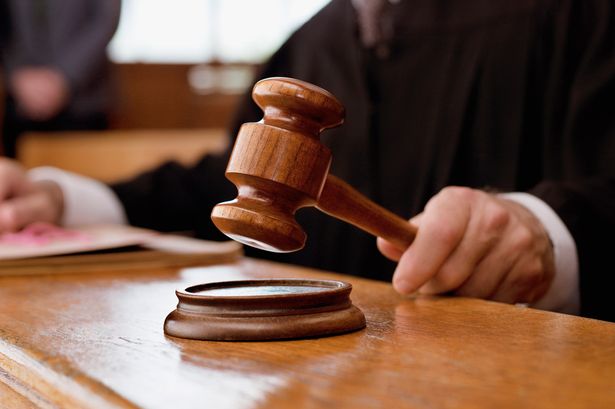 The details of Duncan v. Park Place Motorcars provide a road map to “death penalty” sanctions, both substantively and procedurally as to the trial court’s findings: “On this record, we conclude the imposition of death penalty sanctions was just because it related directly to the conduct at issue in the case—specifically, Duncan’s failure to appear for the completion of his deposition, and generally, Duncan’s continuing violation of the trial court’s orders and hindrance of the discovery process for appellees; the trial court imposed lesser sanctions to no avail; and Duncan’s conduct throughout the long history of the case reasonably justified a presumption his affirmative claims lacked merit. Accordingly, we conclude the trial court did not abuse its discretion in ordering death penalty sanctions in this case.” No. 05-19-00032-CV (June 2, 2020) (mem. op.)
The details of Duncan v. Park Place Motorcars provide a road map to “death penalty” sanctions, both substantively and procedurally as to the trial court’s findings: “On this record, we conclude the imposition of death penalty sanctions was just because it related directly to the conduct at issue in the case—specifically, Duncan’s failure to appear for the completion of his deposition, and generally, Duncan’s continuing violation of the trial court’s orders and hindrance of the discovery process for appellees; the trial court imposed lesser sanctions to no avail; and Duncan’s conduct throughout the long history of the case reasonably justified a presumption his affirmative claims lacked merit. Accordingly, we conclude the trial court did not abuse its discretion in ordering death penalty sanctions in this case.” No. 05-19-00032-CV (June 2, 2020) (mem. op.)
The philosophy of aesthetics finds practical application in the law of website user agreements, as illustrated in Home Advisor, Inc. v. Waddell. The plaintiffs sought to avoid arbitration of their claims, arguing that the notice about “terms and conditions” on this screen was not sufficiently conspicuous:
The Fifth Court disagreed. Citing the recent Northern District of Texas opinion in Phillips v. Neutron Holdings, the Court noted a distinction among “clickwrap” agreements, “browsewrap” agreements, and “sign-in-wrap” agreements. This case involved a sign-in wrap agreement, which “notifies the user of the existence of the website’s terms and conditions and advises the user that he or she is agreeing to the terms when registering an account or signing up,” and is “typically enforce[d] . . . when notice of the existence of the te rms was ‘reasonably conspicuous.'” The Court found that this agreement was conspicuous enough, noting that “more cluttered and complicated sign-in-wrap screens have been found to provide sufficient notice” of similar contract terms. No. 05-19-00669-CV (June 4, 2020) (mem. op.)
rms was ‘reasonably conspicuous.'” The Court found that this agreement was conspicuous enough, noting that “more cluttered and complicated sign-in-wrap screens have been found to provide sufficient notice” of similar contract terms. No. 05-19-00669-CV (June 4, 2020) (mem. op.)
 “[W]e decline to extend the Supreme Court’s holding in Burnham to find personal jurisdiction over James in all of his capacities simply because he was served in his individual capacity while present in Texas. Such a holding would conflict with the consistent position taken by Texas courts that actions taken by an individual in a representative capacity are separate and distinct from actions taken in an individual’s personal capacity.” Hanschen v. Hanschen, No. 05-19-01134-CV (May 28, 2020) (mem. op.) A concurrence noted: “We did not conclude whether the trial court could obtain personal jurisdiction over James in his representative capacities in the future if he were to be served properly in those capacities.”
“[W]e decline to extend the Supreme Court’s holding in Burnham to find personal jurisdiction over James in all of his capacities simply because he was served in his individual capacity while present in Texas. Such a holding would conflict with the consistent position taken by Texas courts that actions taken by an individual in a representative capacity are separate and distinct from actions taken in an individual’s personal capacity.” Hanschen v. Hanschen, No. 05-19-01134-CV (May 28, 2020) (mem. op.) A concurrence noted: “We did not conclude whether the trial court could obtain personal jurisdiction over James in his representative capacities in the future if he were to be served properly in those capacities.”
 Recent orders about conducting trials during the pandemic highlight the different procedural structures of the state and federal courts.
Recent orders about conducting trials during the pandemic highlight the different procedural structures of the state and federal courts.
In the state system, the Texas Supreme Court recently released its seventeenth emergency order about when and how jury trials may resume. (An order, incidentally, that I got from the txcourts.gov website, which shows progress in returning that site to normal after the recent hacker attack.)
In the federal system, the recent order in In re Tanner reminds of the considerable district court discretion about such matters: “[T]he district court has given great consideration to the COVID-19 issues addressed by Tanner. . . . [W]hatever each of us as judges might have done in the same circumstance is not the question. Instead, as cited below, the standards are much higher for evaluating the district court’s decision” for purposes of a writ of mandamus or prohibition. No. 20-10510 (May 29, 2020).
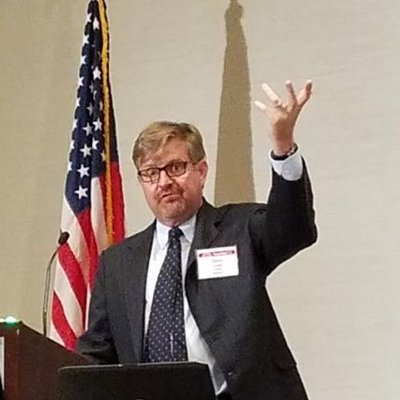 Here is the PowerPoint for my June 2 presentation to the DBA’s Appellate Law Section about Fifth Court commercial-litigation opinions over the last twelve months.
Here is the PowerPoint for my June 2 presentation to the DBA’s Appellate Law Section about Fifth Court commercial-litigation opinions over the last twelve months.
 In a securities fraud case, a trial court issued a protective order against certain questioning of a nonparty deponent. After thoroughly reviewing Texas discovery law about relevance, a Fifth Court panel majority reversed:
In a securities fraud case, a trial court issued a protective order against certain questioning of a nonparty deponent. After thoroughly reviewing Texas discovery law about relevance, a Fifth Court panel majority reversed:
“[W]e conclude the two challenged lines of questioning were not necessarily outside the scope of relevant information. Information concerning other lawsuits is not per se outside the scope of discovery, and relators did not establish below that the circumstances of the non-party’s role in the Servergy and investment adviser situations are so dissimilar to the allegations here as to be irrelevant. Anything reasonably calculated to lead to the discovery of material evidence is generally within the scope of proper discovery.”
In re Cook, No. 05-19-01283-CV (May 20, 2020) (mem. op.) (citations omitted). A dissent saw the matter differently:
“Here, relators have not clearly established that other discovery is unavailable to support their claims and defenses. In fact, the record is clear that the questions prohibited by the protective order were only ‘a few minutes of additional questions’ in a six-hour deposition, and relators were able to explore extensively the nonparty’s relationships with the parties and his familiarity with and participation in the events underlying the case.”
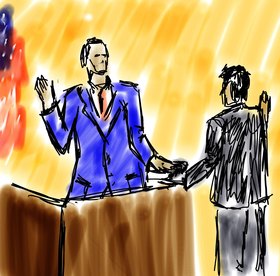 A helpful summary of the requirements for proving up a mandamus record appears in In re Gentry: “Documents become sworn copies when they are attached to an affidavit or to an unsworn declaration conforming to section 132.001 of the Texas Government Code. The affidavit or unsworn declaration must affirmatively show it is based on relator’s personal knowledge. The affidavit or unsworn declaration is insufficient unless the statements in it are direct and unequivocal and perjury can be assigned to them. An affidavit or unsworn declaration would comply with the rule if it stated, under penalty of perjury, that the affiant has personal knowledge that the copies of the documents in the appendix are true and correct copies of the originals.” No. 05-19-01283-CV (May 18, 2020) (mem. op.)
A helpful summary of the requirements for proving up a mandamus record appears in In re Gentry: “Documents become sworn copies when they are attached to an affidavit or to an unsworn declaration conforming to section 132.001 of the Texas Government Code. The affidavit or unsworn declaration must affirmatively show it is based on relator’s personal knowledge. The affidavit or unsworn declaration is insufficient unless the statements in it are direct and unequivocal and perjury can be assigned to them. An affidavit or unsworn declaration would comply with the rule if it stated, under penalty of perjury, that the affiant has personal knowledge that the copies of the documents in the appendix are true and correct copies of the originals.” No. 05-19-01283-CV (May 18, 2020) (mem. op.)
 Pennington, Fields, and Phillips each owned 1/3 of the shares of Advantage Marketing & Labeling, Inc. Pennington argued that under their shareholder agreement he other two were required to buy his stock when he decided to sell his full interest and become a “retiring shareholder” under that agreement. Fields and Phillips resisted, pointing out that Pennington was employed by another business when he made his
Pennington, Fields, and Phillips each owned 1/3 of the shares of Advantage Marketing & Labeling, Inc. Pennington argued that under their shareholder agreement he other two were required to buy his stock when he decided to sell his full interest and become a “retiring shareholder” under that agreement. Fields and Phillips resisted, pointing out that Pennington was employed by another business when he made his  demand; thus, “because he was not ‘retired’ from any and all employment, he could not be a ‘retiring shareholder’ for purposes of the CPA.” The Fifth Court disagreed based on two basic contract-construction principles: “This construction . . . assigns a definition to only one of the two words the parties used to describe who must comply with the paragraph’s provisions. It also disregards the context. The paragraph imposes requirements for the disposition of shares by a ‘retiring shareholder’ in the context of an agreement that imposes restrictions on stock transfer.” Pennington v. Fields, No. 05-19-00149-CV (May 22, 2020) (mem. op.)
demand; thus, “because he was not ‘retired’ from any and all employment, he could not be a ‘retiring shareholder’ for purposes of the CPA.” The Fifth Court disagreed based on two basic contract-construction principles: “This construction . . . assigns a definition to only one of the two words the parties used to describe who must comply with the paragraph’s provisions. It also disregards the context. The paragraph imposes requirements for the disposition of shares by a ‘retiring shareholder’ in the context of an agreement that imposes restrictions on stock transfer.” Pennington v. Fields, No. 05-19-00149-CV (May 22, 2020) (mem. op.)
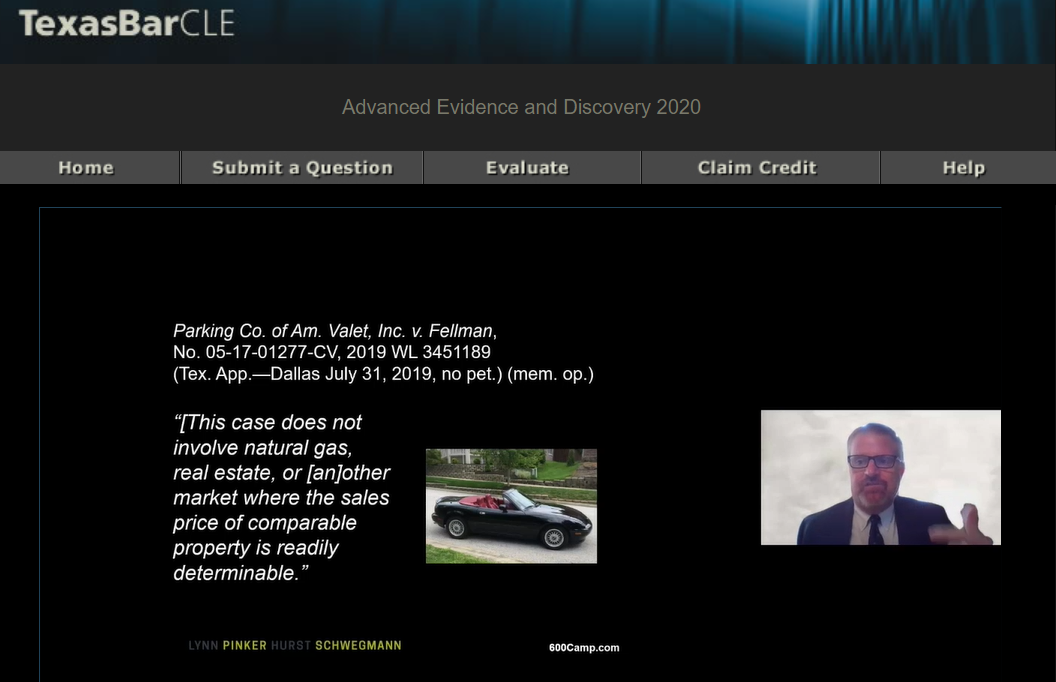 I spoke today, virtually, to the Texas Bar CLE’s 33rd “Advanced Evidence and Discovery Course,” which would have been in San Antonio. My topic was proving up damages in a commercial case, and I focused on ten specific issues identified in recent Texas and Fifth Circuit cases. I also showed off some smooth hand gestures, as you can see above. Here is a copy of my PowerPoint. The Bar staff did a terrific job with the A/V logistics and I look forward to doing another program with them soon.
I spoke today, virtually, to the Texas Bar CLE’s 33rd “Advanced Evidence and Discovery Course,” which would have been in San Antonio. My topic was proving up damages in a commercial case, and I focused on ten specific issues identified in recent Texas and Fifth Circuit cases. I also showed off some smooth hand gestures, as you can see above. Here is a copy of my PowerPoint. The Bar staff did a terrific job with the A/V logistics and I look forward to doing another program with them soon.
 The tenants in a residential lease sued for injuries from toxic mold on the property. The Fifth Court expressed sympathy, but nevertheless affirmed summary judgment for the landlord based on an “as is” clause in the lease, citing Prudential Ins. Co. v. Jefferson Assocs. 896 S.W.2d 156 (Tex. 1995). In addition to noting that the clause was prominently written in all-caps, and consistent with other related provisions in the lease, the Court observed: ‘Before they entered into the Lease and related agreements, Rebecca walked through the house twice and Richard walked through the house once. After signing the Lease but prior to moving in, the Potters visited the house again and saw “black substance” on the wall and coming out of a wall socket. Rebecca testified she saw “bubbling” and “deforming” of a wall that, according to a workman, was caused by “clogged gutters.” In a subsequent visit prior to moving in, Richard saw “black underneath the carpet” being removed by a carpet repairman. When they were told by workmen the black substance was dirt and dog feces, the Potters did not further investigate.’ Potter v. HP Texas 1 LLC, No. No. 05-18-01513-CV (Apr. 6, 2019) (mem. op.)
The tenants in a residential lease sued for injuries from toxic mold on the property. The Fifth Court expressed sympathy, but nevertheless affirmed summary judgment for the landlord based on an “as is” clause in the lease, citing Prudential Ins. Co. v. Jefferson Assocs. 896 S.W.2d 156 (Tex. 1995). In addition to noting that the clause was prominently written in all-caps, and consistent with other related provisions in the lease, the Court observed: ‘Before they entered into the Lease and related agreements, Rebecca walked through the house twice and Richard walked through the house once. After signing the Lease but prior to moving in, the Potters visited the house again and saw “black substance” on the wall and coming out of a wall socket. Rebecca testified she saw “bubbling” and “deforming” of a wall that, according to a workman, was caused by “clogged gutters.” In a subsequent visit prior to moving in, Richard saw “black underneath the carpet” being removed by a carpet repairman. When they were told by workmen the black substance was dirt and dog feces, the Potters did not further investigate.’ Potter v. HP Texas 1 LLC, No. No. 05-18-01513-CV (Apr. 6, 2019) (mem. op.)
 ACI, the general contractor on a hotel-construction project, was sued by Ram, the subcontractor who installed the window. Ram won a summary judgment for a violation of Texas’s Prompt Payment Act. ACI asserted a defense under the Construction Trust Fund Act involving “actual expenses directly related to the construction or repair of the improvement … .” The Fifth Court found the relevant statutory language clear and unambiguous, requiring no further use of statutory-interpretation techniques: “[The Trust Fund Act provision] acts as a defense to claims of misapplication of funds the contractor holds in trust for beneficiaries. It does not apply to a claim the contractor failed to promptly pay subcontractors.” Alberelli Constr. v. Ram Indus. Acquisitions LLC, No. 05-18-01529-CV (May 15, 2020).
ACI, the general contractor on a hotel-construction project, was sued by Ram, the subcontractor who installed the window. Ram won a summary judgment for a violation of Texas’s Prompt Payment Act. ACI asserted a defense under the Construction Trust Fund Act involving “actual expenses directly related to the construction or repair of the improvement … .” The Fifth Court found the relevant statutory language clear and unambiguous, requiring no further use of statutory-interpretation techniques: “[The Trust Fund Act provision] acts as a defense to claims of misapplication of funds the contractor holds in trust for beneficiaries. It does not apply to a claim the contractor failed to promptly pay subcontractors.” Alberelli Constr. v. Ram Indus. Acquisitions LLC, No. 05-18-01529-CV (May 15, 2020).
Appellant challenged a temporary injunction arising from a noncompetition agreement about supplying beauty products to salons. The Fifth Court affirmed in Kim v. Oh, holding, inter alia:
 Supply is not a party to this suit. However, these arguments raise affirmative defenses and dilatory pleas, which may be addressed at a later proceedings on the merits and are not issues to be resolved at this stage . . . ” (footnote omitted).
Supply is not a party to this suit. However, these arguments raise affirmative defenses and dilatory pleas, which may be addressed at a later proceedings on the merits and are not issues to be resolved at this stage . . . ” (footnote omitted).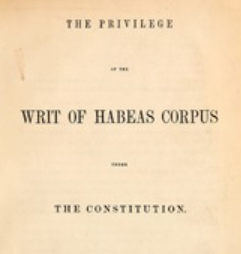 Discovery problems led to a contempt finding and an order imposing jail time in In re Duncan, No. 05-19-01572-CV (May 14, 2020) (mem. op.) The Fifth Court granted habeas relief, noting this basic due-process requirement in this area:
Discovery problems led to a contempt finding and an order imposing jail time in In re Duncan, No. 05-19-01572-CV (May 14, 2020) (mem. op.) The Fifth Court granted habeas relief, noting this basic due-process requirement in this area:
“Contempt may be. . .divided into civil or coercive contempt, which involves confinement pending obedience to the trial court’s order, and criminal or punitive contempt, which results in a punishment for past transgressions. In cases where the trial court seeks to impose criminal or punitive constructive contempt, due process requires a contemnor to either be present or affirmatively waive his or her presence for the contempt hearing.. When the contemnor fails to appear for the contempt hearing, the trial court must issue a capias or writ of attachment to secure the contemnor’s presence.”
(emphasis added, citations omitted, applying, inter alia, In re Reece, 341 S.W.3d 360 (Tex. 2011), and Ex parte Alloju, 907 S.W.2d 486 (Tex. 1995)).
 The Fifth Court’s newly-released opinions are back online, with opinions accessible on a website and a new Twitter account. A press release from the Court has additional information about access while the main txcourts.gov site continues to be down. Bloggers and court observers rejoice!
The Fifth Court’s newly-released opinions are back online, with opinions accessible on a website and a new Twitter account. A press release from the Court has additional information about access while the main txcourts.gov site continues to be down. Bloggers and court observers rejoice!
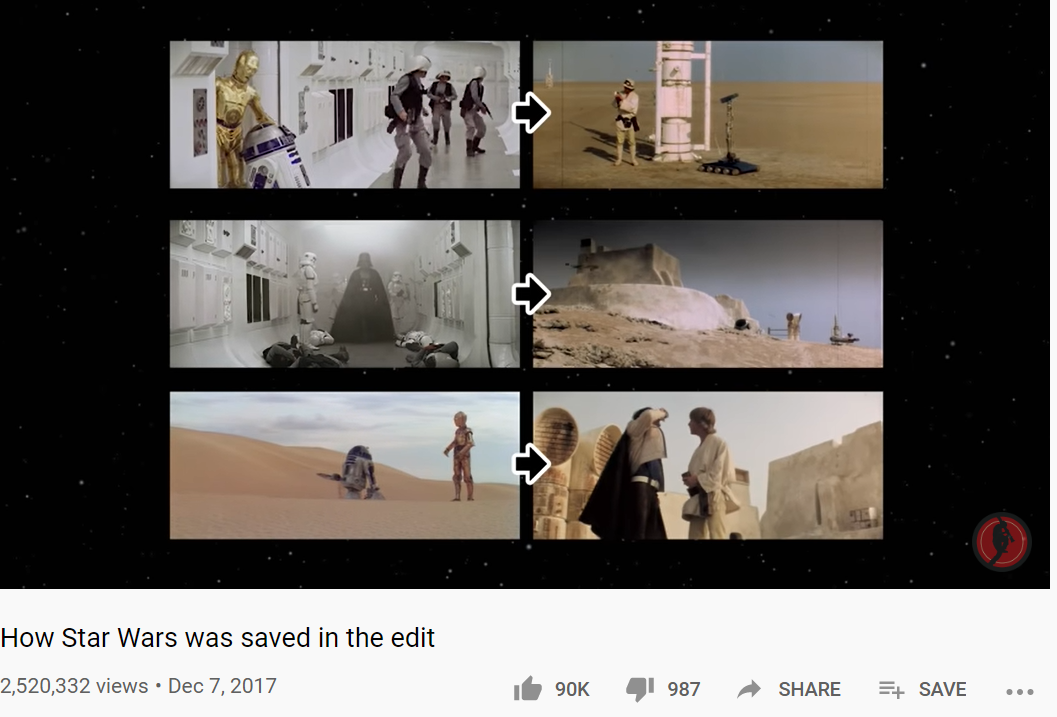 With the kids home from school because of the coronavirus, I’ve watched a lot of YouTube videos over their shoulders. In particular, this one tells the fascinating story about how post-production editing saved Star Wars, which was bloated and impossible to follow in its first rough versions. Among
With the kids home from school because of the coronavirus, I’ve watched a lot of YouTube videos over their shoulders. In particular, this one tells the fascinating story about how post-production editing saved Star Wars, which was bloated and impossible to follow in its first rough versions. Among  other changes, the start of the film was drastically simplified – from a series of back-and-forths between space and Tatooine, to a focus on the opening space battle and no shots of Tatooine until the droids landed there. This bit of editing is directly relevant to the tendency of legal writers to “define” (introduce) all characters and terms at the beginning of their work, without regard to the flow of the narrative that follows.
other changes, the start of the film was drastically simplified – from a series of back-and-forths between space and Tatooine, to a focus on the opening space battle and no shots of Tatooine until the droids landed there. This bit of editing is directly relevant to the tendency of legal writers to “define” (introduce) all characters and terms at the beginning of their work, without regard to the flow of the narrative that follows.
 It is hard to blog about the Texas state appellate courts when their website has been the victim of a ransomware attack! The unfortunate incident has been well-covered by the Texas Lawbook and Law360. Posts on this blog will be less frequent until the situation is resolved.
It is hard to blog about the Texas state appellate courts when their website has been the victim of a ransomware attack! The unfortunate incident has been well-covered by the Texas Lawbook and Law360. Posts on this blog will be less frequent until the situation is resolved.
 A trademark-user who establishes prior use of the mark can still lose his rights to it if he abandoned them. “A party trying to show abandonment must prove that the owner of the mark both discontinued use of it and that he did not intend to resume its use in the reasonably foreseeable future. Nonuse of a mark for a period of three consecutive years creates a rebuttable presumption that a mark has been abandoned without intent to resume its use.” (citation omitted).
A trademark-user who establishes prior use of the mark can still lose his rights to it if he abandoned them. “A party trying to show abandonment must prove that the owner of the mark both discontinued use of it and that he did not intend to resume its use in the reasonably foreseeable future. Nonuse of a mark for a period of three consecutive years creates a rebuttable presumption that a mark has been abandoned without intent to resume its use.” (citation omitted).
In King Aerospace, Inc. v. King Aviation Dallas, the appellee contended that the relevant mark was abandoned after the appellant had a serious accident. “KAC contends it made a prima facie case of abandonment because Randall admitted he did not make any aircraft sales from 1993 until at least 2000. Although Randall testified he did not personally sell any aircraft while he was recovering from his near-fatal accident, he also  testified his father, Sam, was conducting the business of the company during that time. Jordan testified that, while Randall was recovering, he helped Sam file monthly reports identifying what airplanes they owned, when they bought them, and when they sold them.” This evidence established use and defeated the intent requirement: “The fact that Sam continued the business of the company, and Randall resumed selling planes using the names King Aviation and King Aviation Dallas as soon as he was able to do so, is evidence of his intent to resume use of the marks.” No. 05-19-00245-CV (April 30, 2020) (mem. op.).
testified his father, Sam, was conducting the business of the company during that time. Jordan testified that, while Randall was recovering, he helped Sam file monthly reports identifying what airplanes they owned, when they bought them, and when they sold them.” This evidence established use and defeated the intent requirement: “The fact that Sam continued the business of the company, and Randall resumed selling planes using the names King Aviation and King Aviation Dallas as soon as he was able to do so, is evidence of his intent to resume use of the marks.” No. 05-19-00245-CV (April 30, 2020) (mem. op.).
 To the right, Pikachu is waving, but the appellee in King Aerospace, Inc. v. King Aviation Dallas was not waiving, as the Fifth Court observed:
To the right, Pikachu is waving, but the appellee in King Aerospace, Inc. v. King Aviation Dallas was not waiving, as the Fifth Court observed:
In its reply brief, KAC contends Randall’s responsive brief on appeal, filed pro se, “provides nothing for this Court to review” because it fails to cite to the appellate record or legal authority. In his response, Randall informed the Court he was unable to find appellate counsel and he submitted his trial counsel’s post-trial brief as his response to KAC’s appellate arguments. KAC, as the appellant, has the burden to show grounds for reversal on appeal. Randall, as appellee, was not required to file a brief for us to review what was presented to the trial court; thus, he cannot be said to have committed “waiver” due to inadequate briefing.
No. 05-19-00245-CV (April 30, 2020) (mem. op.) (citation omitted, emphasis added).
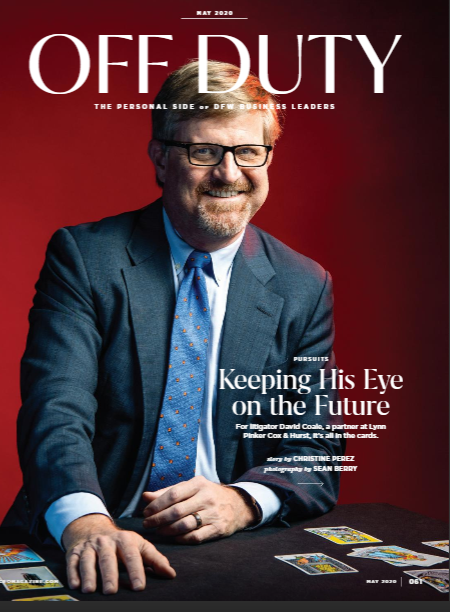 On pages 62-63 of the May 2020 issue of “D CEO” magazine, you can read a profile of me as the only Tarot-reading lawyer in Dallas–a skill first acquired on trips to New Orleans for appellate business!
On pages 62-63 of the May 2020 issue of “D CEO” magazine, you can read a profile of me as the only Tarot-reading lawyer in Dallas–a skill first acquired on trips to New Orleans for appellate business!
 The Fifth Court’s recent opinion in Guillory v. Dietrich addressed the appropriate subjects for findings of fact. The Court continued discussion of that subject in King Aerospace, Inc. v. King Aviation Dallas, a rare state-court trademark-infringement case. (The substantive holdings of King will be discussed in later posts.) The Court rejected the appellants’ arguments that these additional findings of fact should have been made:
The Fifth Court’s recent opinion in Guillory v. Dietrich addressed the appropriate subjects for findings of fact. The Court continued discussion of that subject in King Aerospace, Inc. v. King Aviation Dallas, a rare state-court trademark-infringement case. (The substantive holdings of King will be discussed in later posts.) The Court rejected the appellants’ arguments that these additional findings of fact should have been made:
No. 05-19-00245-CV (April 30, 2020) (mem. op.).
In a detailed review of whether certain pretrial activity waived a special appearance, the Fifth Court reminded: “Examples of actions a party can take without waiving a special appearance are (1) filing a motion for continuance relating to discovery on a motion to quash service; (2) serving nonjurisdictional discovery requests; (3) filing a motion to compel nonjurisdictional discovery but not scheduling a hearing or obtaining a ruling on the motion; (4) litigating a jurisdictional discovery dispute; (5) litigating other disputes that are factually related to the special appearance; or (6) litigating opposition to merits-based discovery sought by another party.”
Applying these principles, the Court concluded that no waiver occurred by (1) “filing an obtaining a ruling on a Motion to Vacate Judgment and Protective Order,” (2) participating in discovery, including responding to a request for disclosures, and (3) filing a sanctions motion based on Tex. R. Civ. P. 13, which in part touched on the allegations relevant to the jurisdiction dispute. Brady v. Kane, No. 05-18-01105-CV (April 28, 2020) (mem. op.).
“First Ovilla sought to build a house on property that is encumbered by restrictive covenants, and the property owners’ association had previously sought to prevent another builder from constructing a house with a similar building plan. The amended permanent injunction signed in that case (and on which appellees largely relied in their plea to the jurisdiction) has been dissolved by this Court. Therefore, given the record before us, the declarations sought by First Ovilla present a justiciable controversy and are not moot.” First Ovila v. Primm, No. 05-19-00042-CV (April 27, 2020) (mem. op.) (emphasis added).
 The jury charge in an attorney-client fee dispute asked: “Did any of the following persons form an agreement with Glast, Phillips & Murray, PC to pay for fees concerning legal representation?” The question then required the jury to answer “yes” or “no” for both of the defendants on that claim. They lost, and argued on appeal that “question one asked the jury if a contract had been formed between the parties—an issue the [defendants] argue was not in dispute—but neglected to ask whether the agreement was for payment of a flat fee or GPM’s hourly rates” (citing Lone Starr Multi-Theatres v. Max Interests, 365 S.W.3d 688 (Tex. App.–Houston [1st Dist.] 2011, no pet.)
The jury charge in an attorney-client fee dispute asked: “Did any of the following persons form an agreement with Glast, Phillips & Murray, PC to pay for fees concerning legal representation?” The question then required the jury to answer “yes” or “no” for both of the defendants on that claim. They lost, and argued on appeal that “question one asked the jury if a contract had been formed between the parties—an issue the [defendants] argue was not in dispute—but neglected to ask whether the agreement was for payment of a flat fee or GPM’s hourly rates” (citing Lone Starr Multi-Theatres v. Max Interests, 365 S.W.3d 688 (Tex. App.–Houston [1st Dist.] 2011, no pet.)
The Fifth Court found no abuse of discretion in the submission. It distinguished Lone Starr, a landlord-tenant dispute, as involving a disconnect between the jury’s damages finding and the judgment, in that “none of the questions submitted to the jury asked the amount of lost rentals suffered by the landlord, and the [jury’s] ‘fair market value’ determination did not include or even support a lost rentals determination.” Here, in contrast: “. . . in answering question four, the jury calculated GPM’s damages as the amount of GPM’s outstanding invoices, an amount derived from GPM’s hourly rates and billable hours rather than any flat fee. Accordingly, the jury necessarily rejected the Namdars’ capped fee term, and the answer to question four informs us that the jury determined the parties agreed that the Namdars would pay GPM’s hourly rates for the hours billed.” Narmarkhan v. Glast Phillips & Murray, No. 18-0802-CV (April 24, 2020) (mem. op.).
 As reported by The Verge on April 24, Microsoft Word now auto-corrects the use of two spaces after a period at the end of a sentence. The battle, such as it was, should now be considered over. This influential article in Slate explains why the one-spacers – while correct during the era of typewriters, which made every letter and space the same size – have been wrong since the early 1990s and the widespread availability of proportional spacing in modern word processing software.
As reported by The Verge on April 24, Microsoft Word now auto-corrects the use of two spaces after a period at the end of a sentence. The battle, such as it was, should now be considered over. This influential article in Slate explains why the one-spacers – while correct during the era of typewriters, which made every letter and space the same size – have been wrong since the early 1990s and the widespread availability of proportional spacing in modern word processing software.
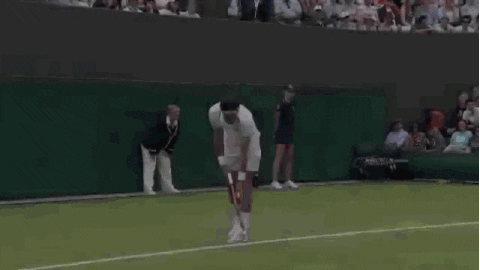 Evans v. Martinez arose from a jury trial as to whether reasonable diligence had been used in serving a defendant, against whom suit had been filed on the last day of the limitations period. The jury answered “no” and the Fifth Court affirmed the resulting judgment: “Here, the return of service recites that the process server first came into possession of the citation on October 27, 2015, more than a month after limitations expired. Although Weinkauf offered some evidence regarding the delay, he did not explain why, when he knew he had filed suit on the last day of limitations and that he would shortly leave on vacation, he did not make an alternative arrangement to ensure that the effort to serve Martinez would begin in his absence. On his return, he left the citation sitting at his reception desk and checked on it only once a week even after problems arose with his arrangements for service. There is no evidence to support his testimony of the efforts he made, such as phone records, notes, emails, or testimony from support staff or process servers.” No. 05-18-01241-CV (April 20, 2020) (mem. op.)
Evans v. Martinez arose from a jury trial as to whether reasonable diligence had been used in serving a defendant, against whom suit had been filed on the last day of the limitations period. The jury answered “no” and the Fifth Court affirmed the resulting judgment: “Here, the return of service recites that the process server first came into possession of the citation on October 27, 2015, more than a month after limitations expired. Although Weinkauf offered some evidence regarding the delay, he did not explain why, when he knew he had filed suit on the last day of limitations and that he would shortly leave on vacation, he did not make an alternative arrangement to ensure that the effort to serve Martinez would begin in his absence. On his return, he left the citation sitting at his reception desk and checked on it only once a week even after problems arose with his arrangements for service. There is no evidence to support his testimony of the efforts he made, such as phone records, notes, emails, or testimony from support staff or process servers.” No. 05-18-01241-CV (April 20, 2020) (mem. op.)
Amend v. J.C. Penney Corp. declined to apply the TCPA to a noncompete case. As to the right of association the Court observed: ‘Amend testified he is “responsible for Lowe’s’ website and app sales,” “responsible for online merchandising,” and responsible for “driving sales.” In his position, he works with others on “product management,” “analytics,” “digital technology,” and “strategy and business development,” and he makes recommendations to other Lowe’s employees about these subjects. The evidence does not show that these responsibilities necessarily involve public communications. Instead the responsibilities appear to involve communications between Amend and other Lowe’s employees.’ No. 05-19-00723 (March 31, 2020) (mem. op.) (emphasis added) (LPHS represented the successful appellee in this case.)